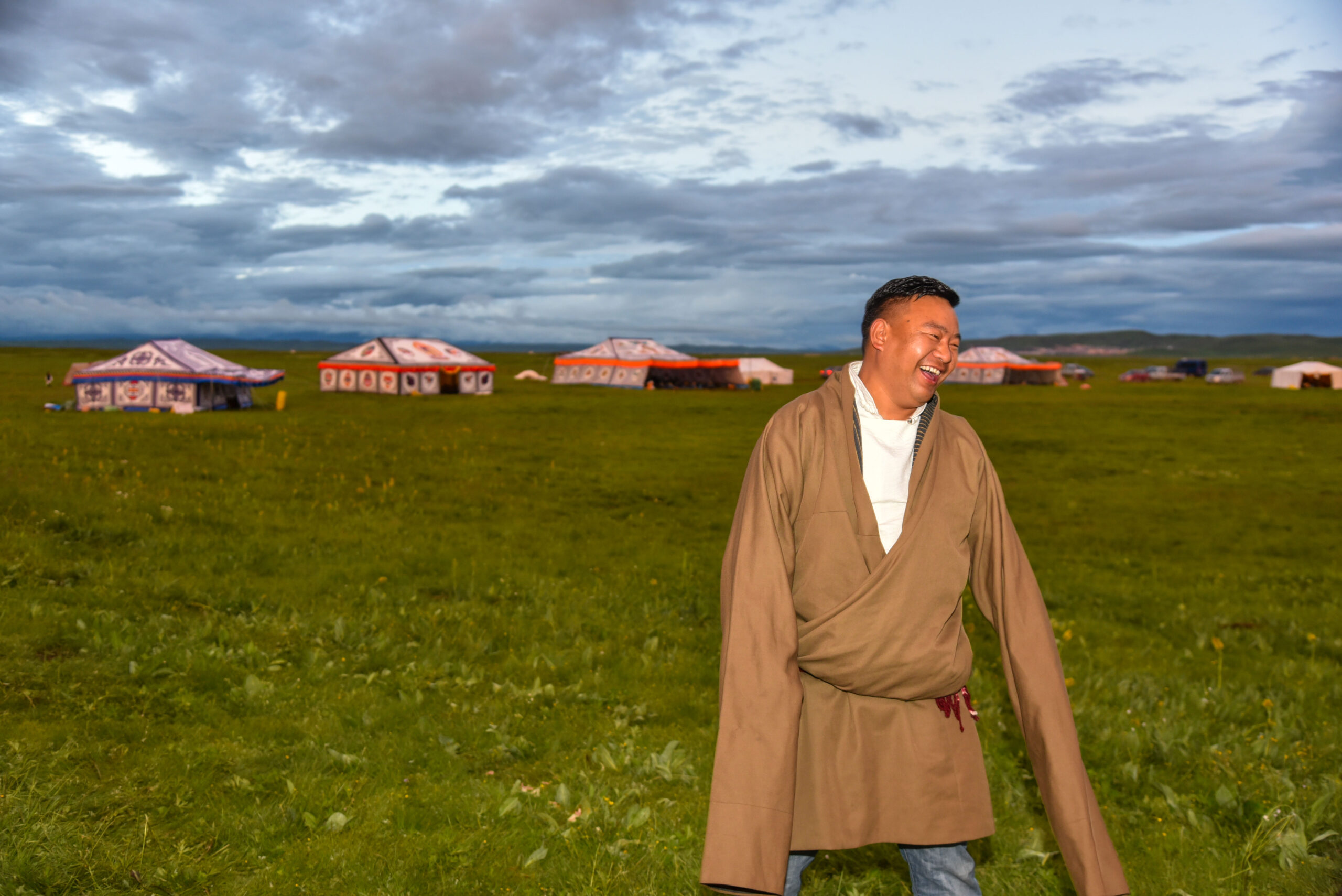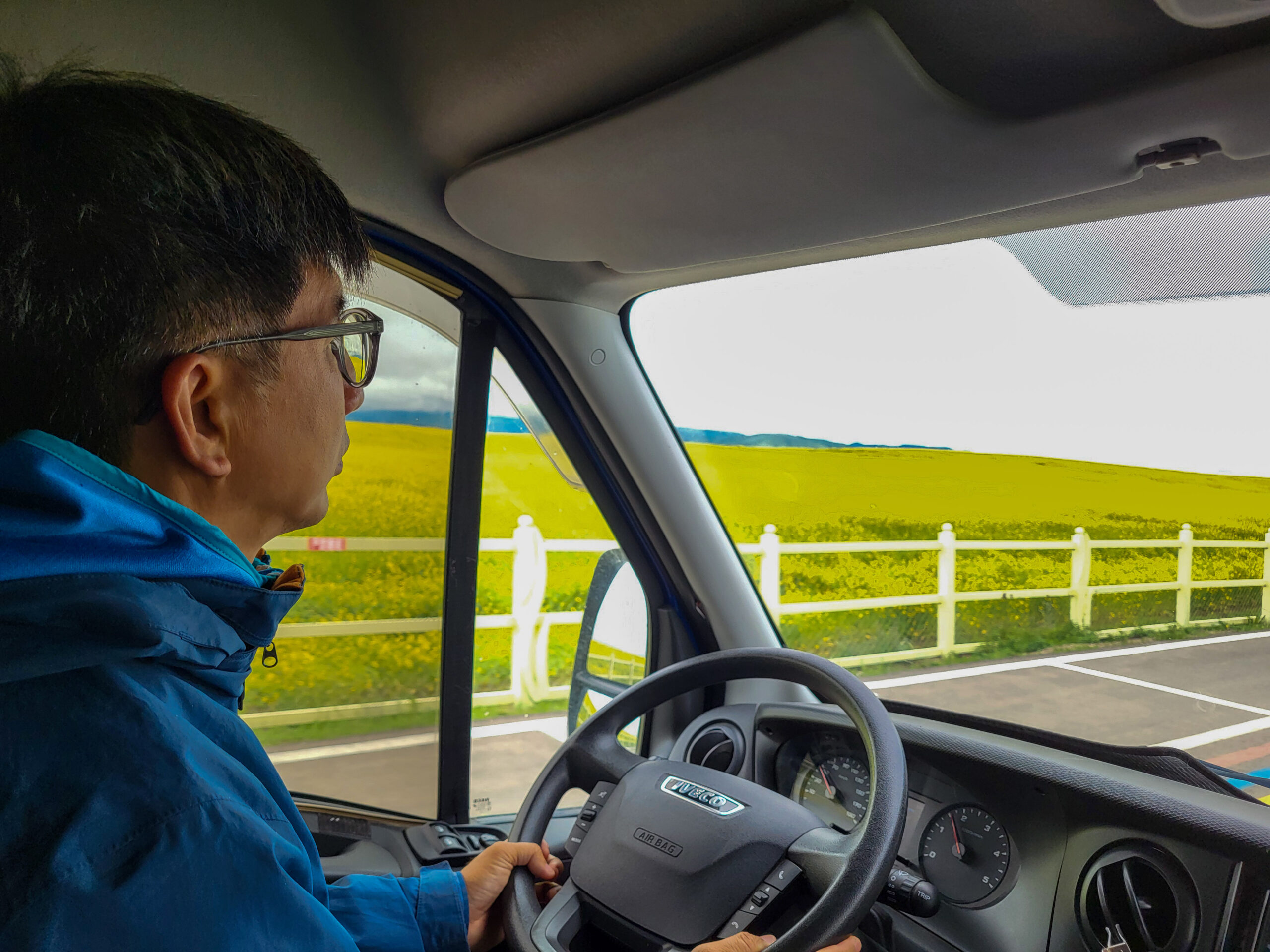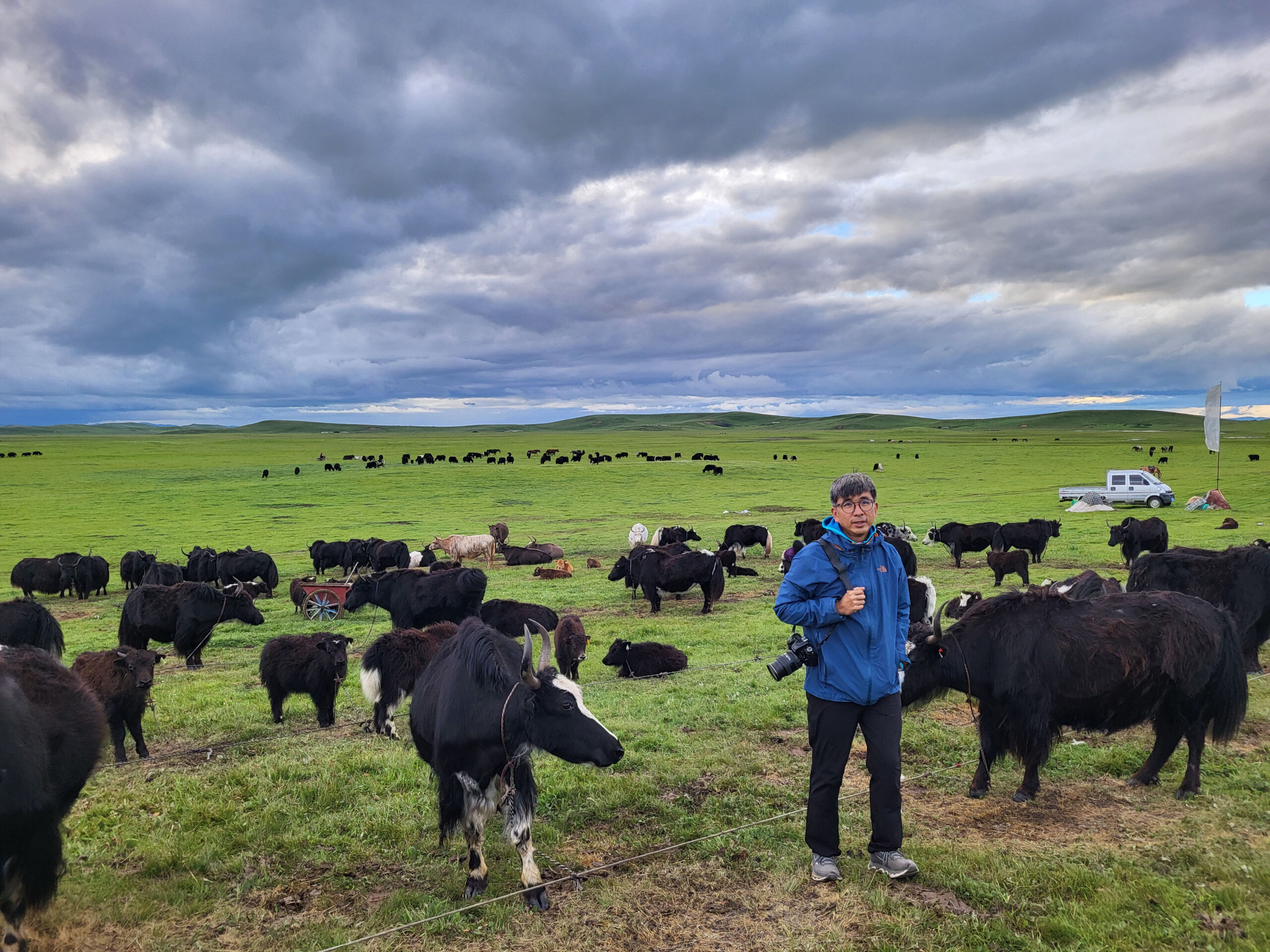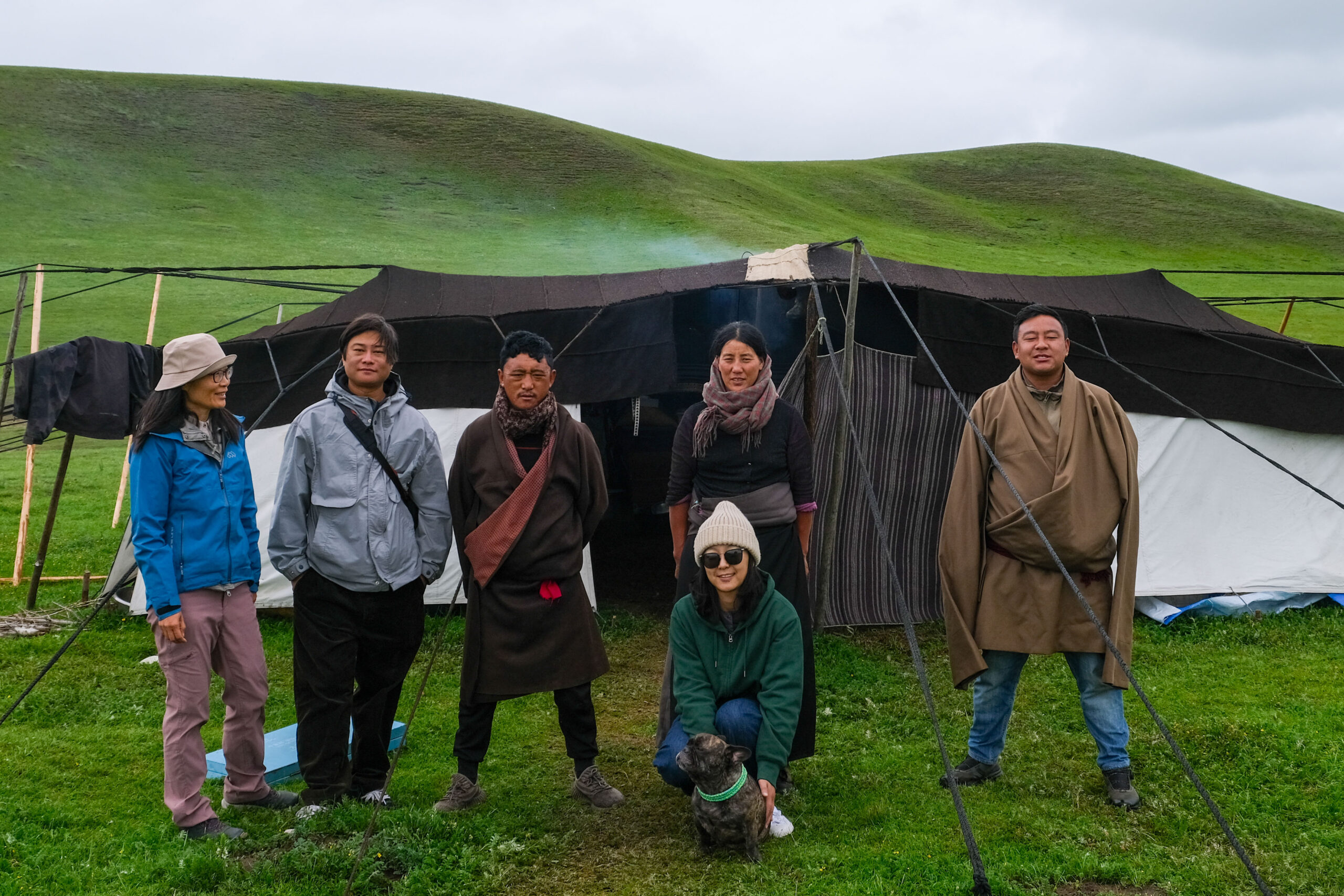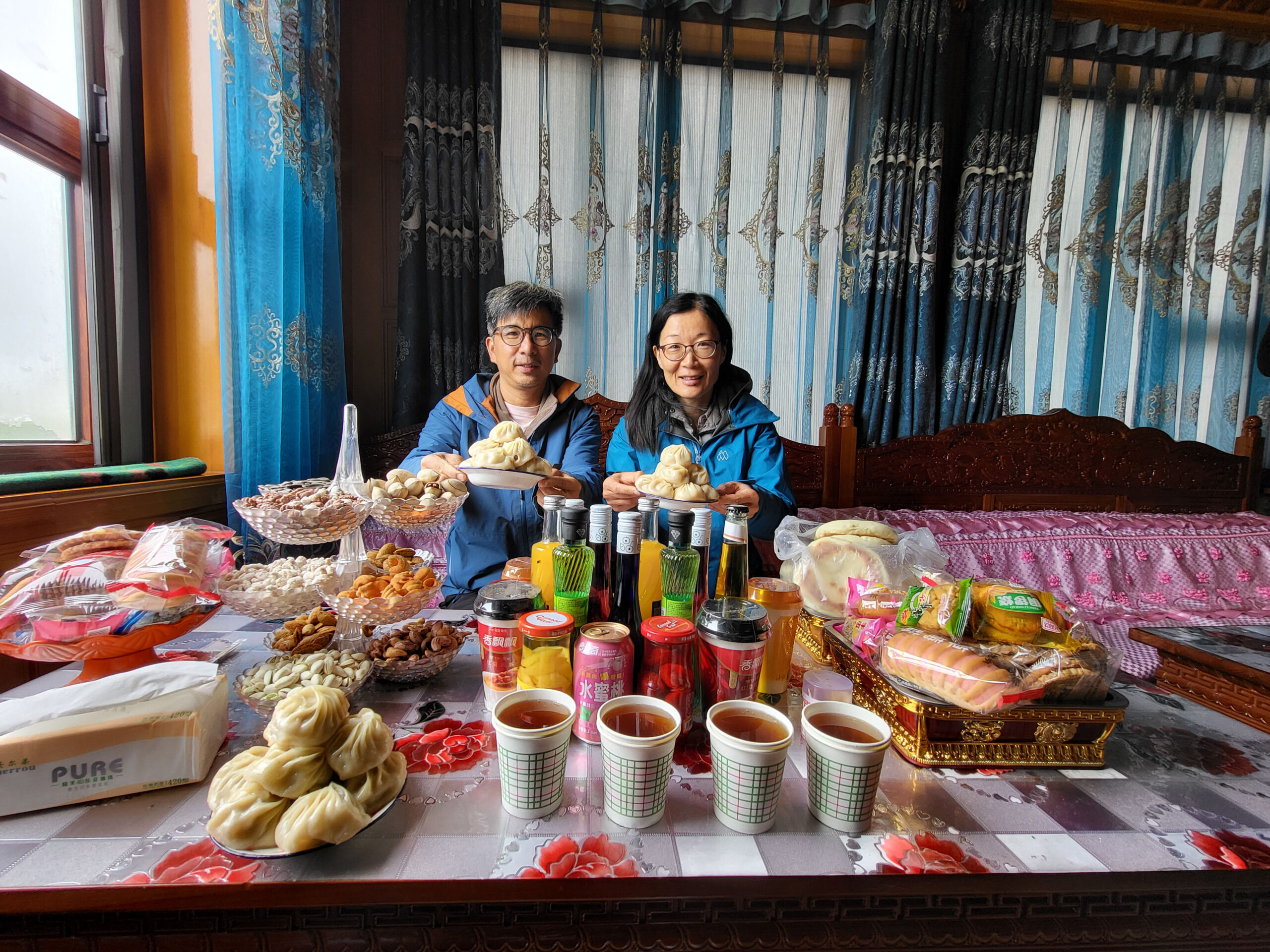July 6-10, 2024
Life is full of unexpected surprises. After almost a month in the charismatic Chengdu, we originally planned to drive to a small town in western Sichuan recommended by our Chengdu friend to escape the summer heat and experience rural life. But a few days before departure, Yangzhou friend Niu Niu (妞妞) said that she was desperate to get away and travel. So, we ended up meeting up in Ruoergai Grassland (若爾蓋草原) at over 3,500m in north western Sichuan to see her Tibetan friend, Zhuoma (卓瑪).
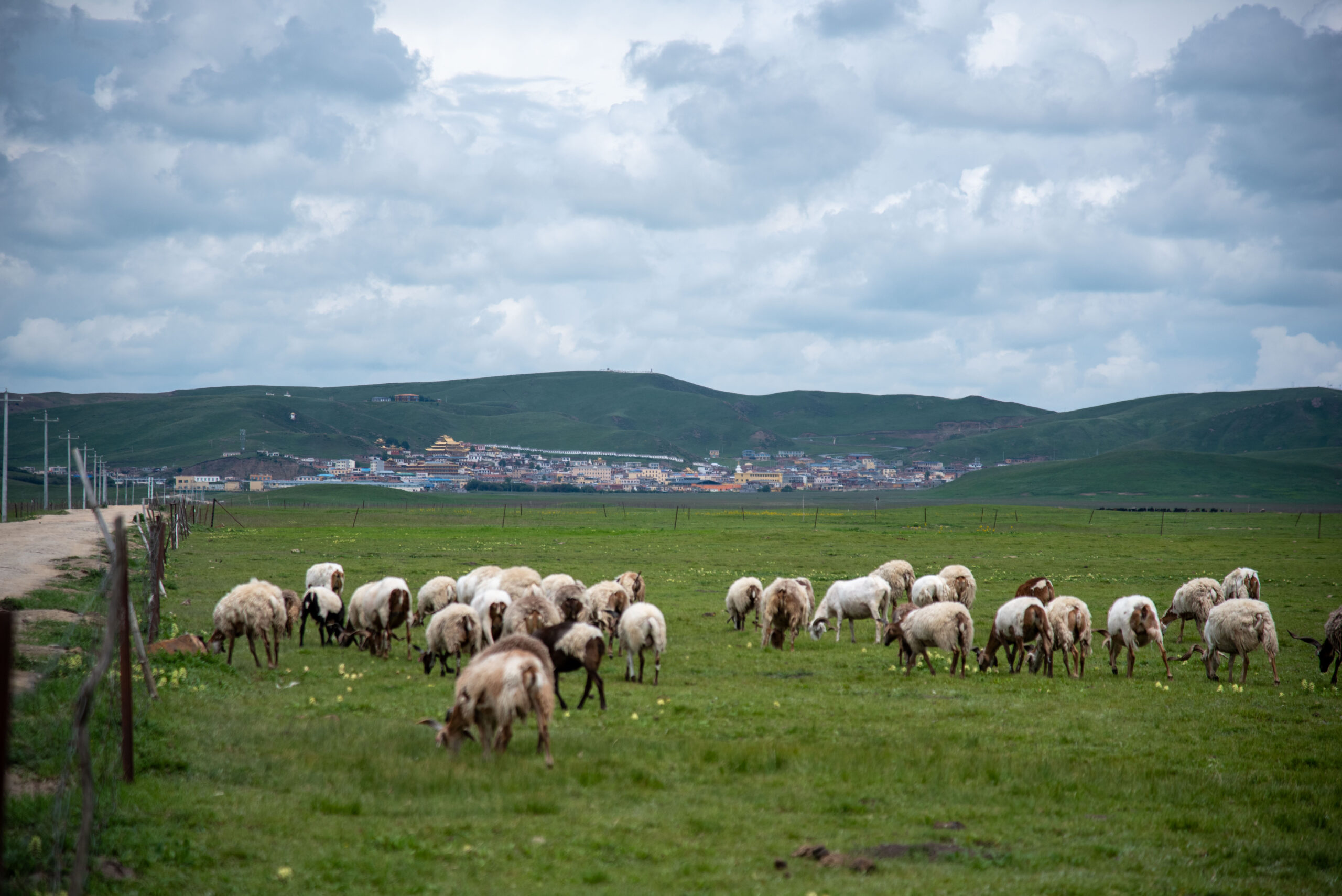
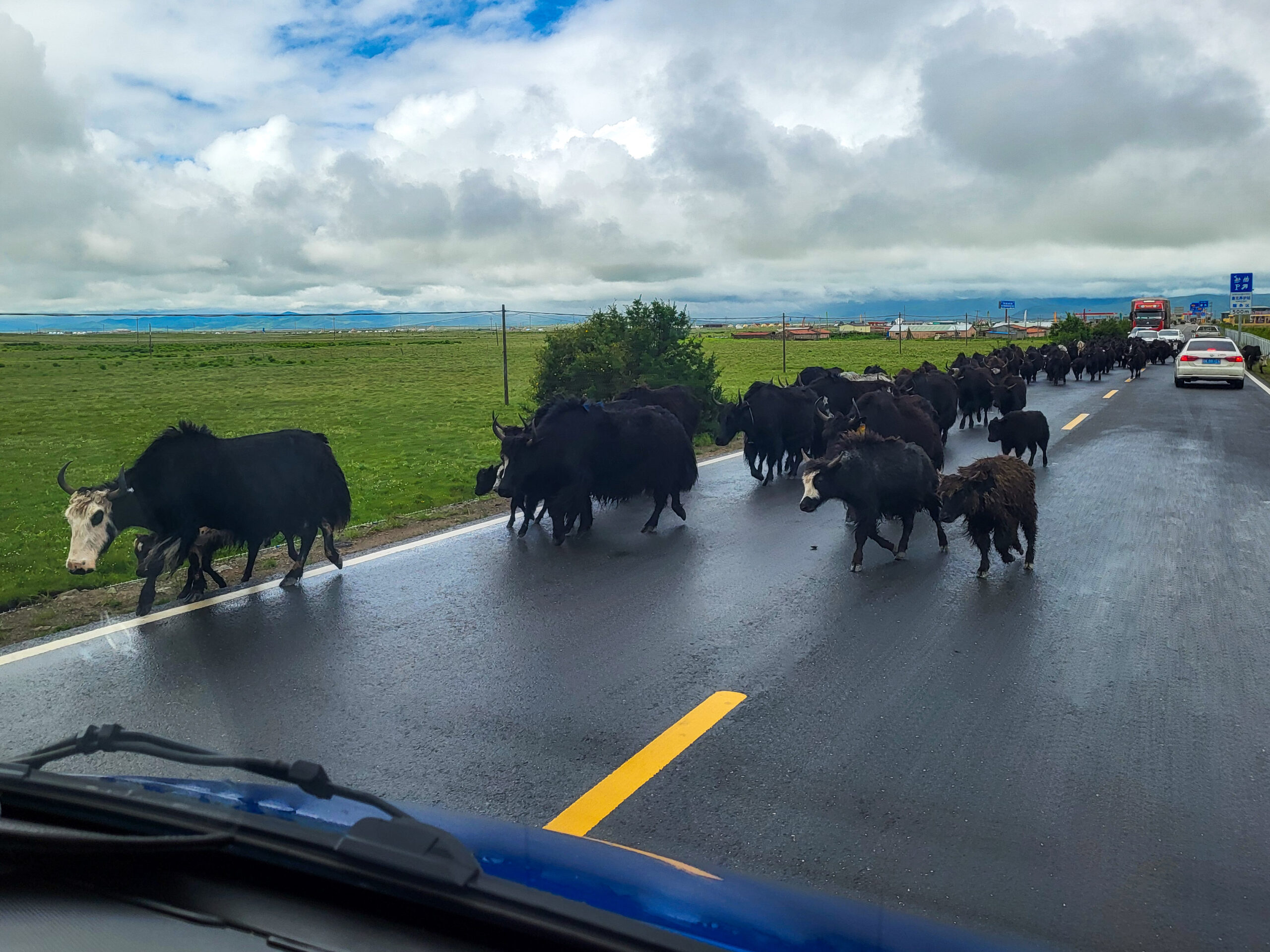
I once said that travelling is a journey of discovery. We discovered and learned so much in the grassland of the Tibetan area of Ando (安多藏區). Not only we experienced the Tibetan nomadic way of life and their culture, but we realized how fragile and helpless we urban people are both physically and mentally against nature and its changes.
Although we had stayed in Tibet for over half a year back in 2020, I started having nagging headaches and felt a slight tightness in the chest when we reached 3000-metre altitude about 400 kilometres away from Chengdu. While Chengdu was wading into hot summer, it was cool in the high grassland with huge temperature drop day and night (down to under 10 degrees Celcius). We wrapped ourselves in light down jackets and didn’t shower the first night in the town of Ruoergai(若爾蓋), fearing we might catch a cold which could be dangerous for our delicate bodies.
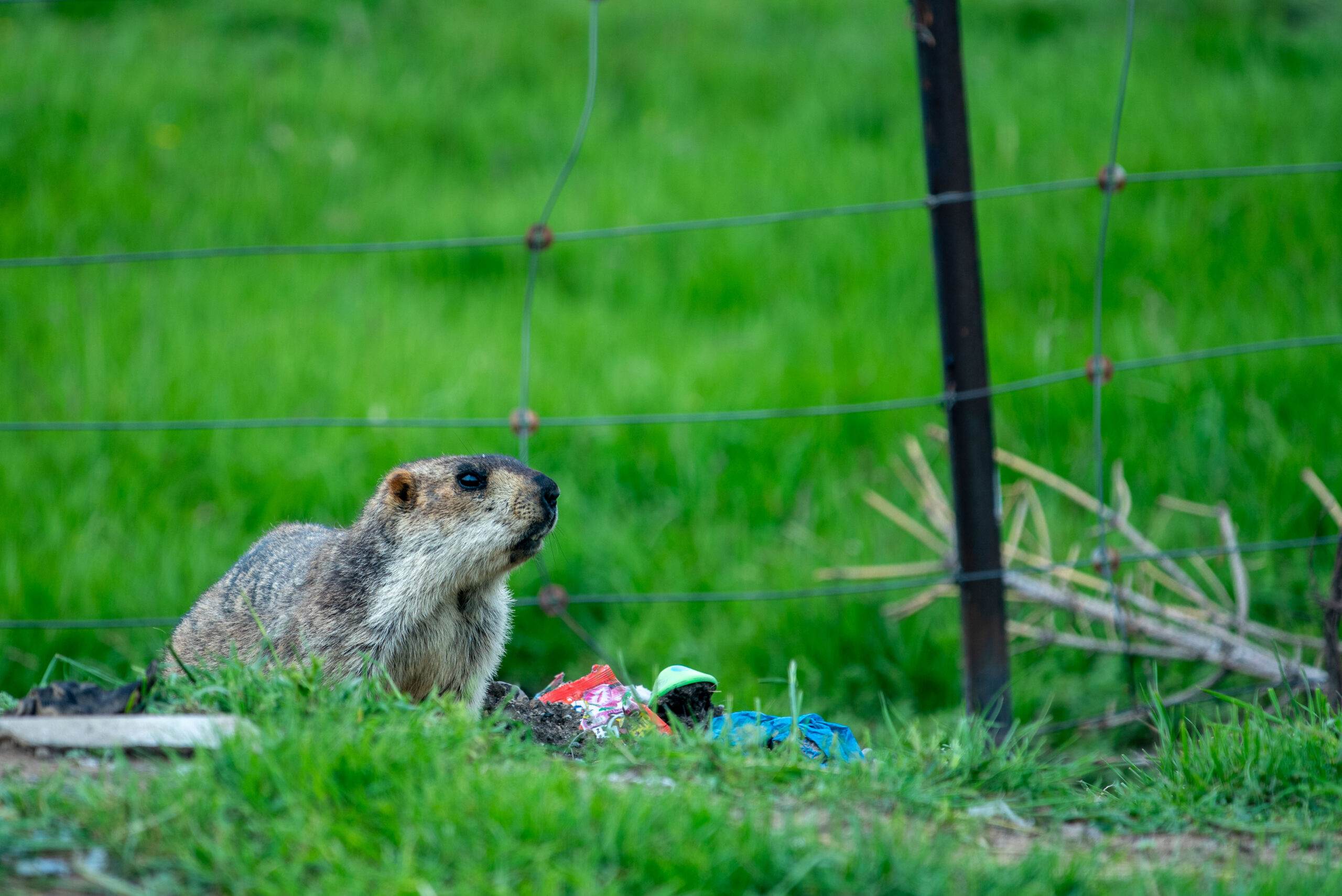
Niu Niu drove over 2,000 kilometres covering six cities and took her six days to reach the grassland. She arrived just before midnight. We were overjoyed to see her and Monkey, her Frenchie whom we hadn’t seen for over two years. We weren’t sure if Monkey would remember us but all doubts were dispersed the moment he saw us. He bounced up and down when Kin opened the door. We missed Monkey and he’s as energetic as ever despite the long drive and high altitude!
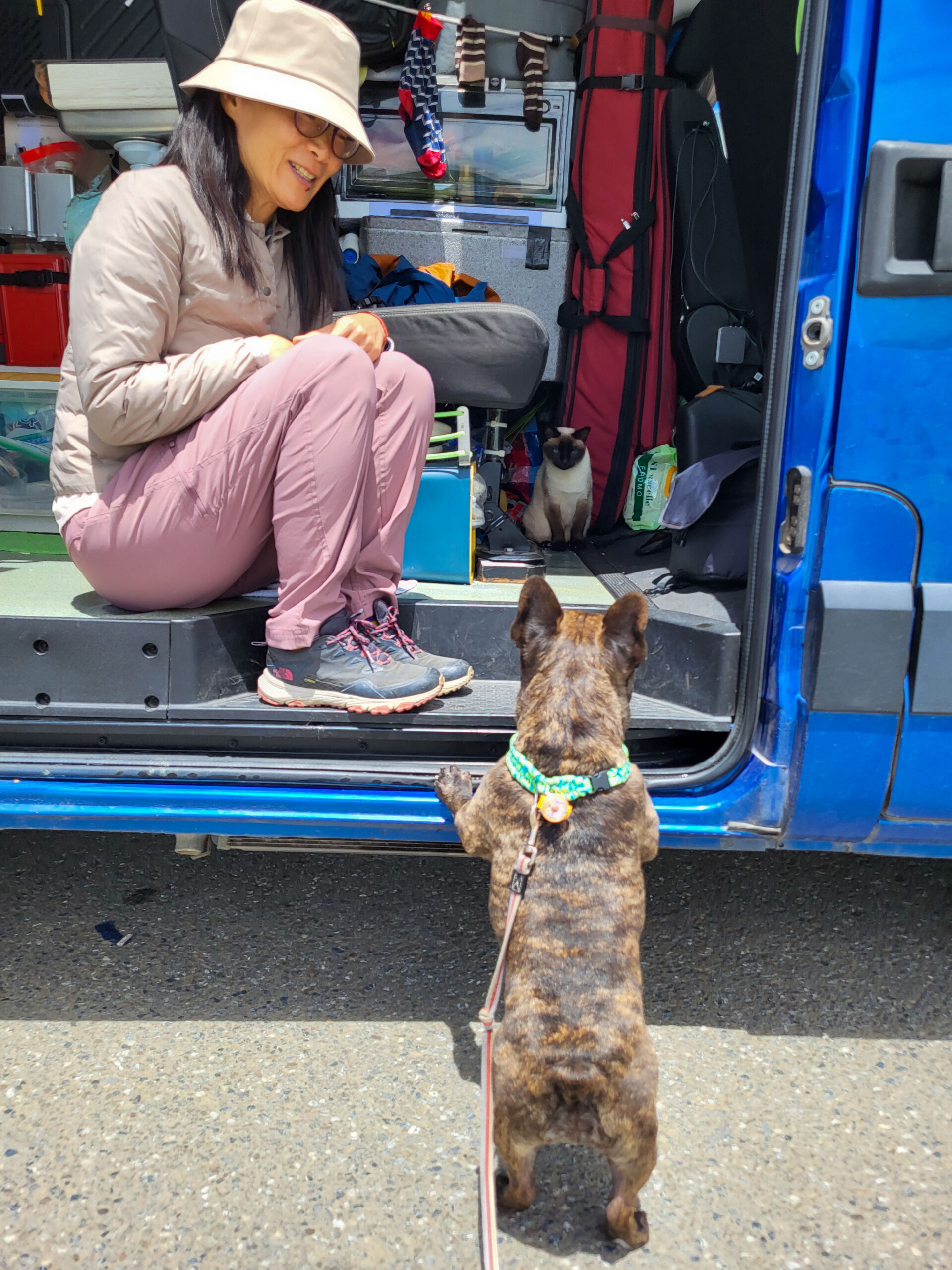
We were frequently touched by the generosity and hospitality of various people on the road. But let me tell you that the nomadic Tibetan hospitality is entirely another whole new level. Again, serendipity came into play as we would never have the chance to become friends with them if Niu Niu didn’t decide to see Zhuoma.
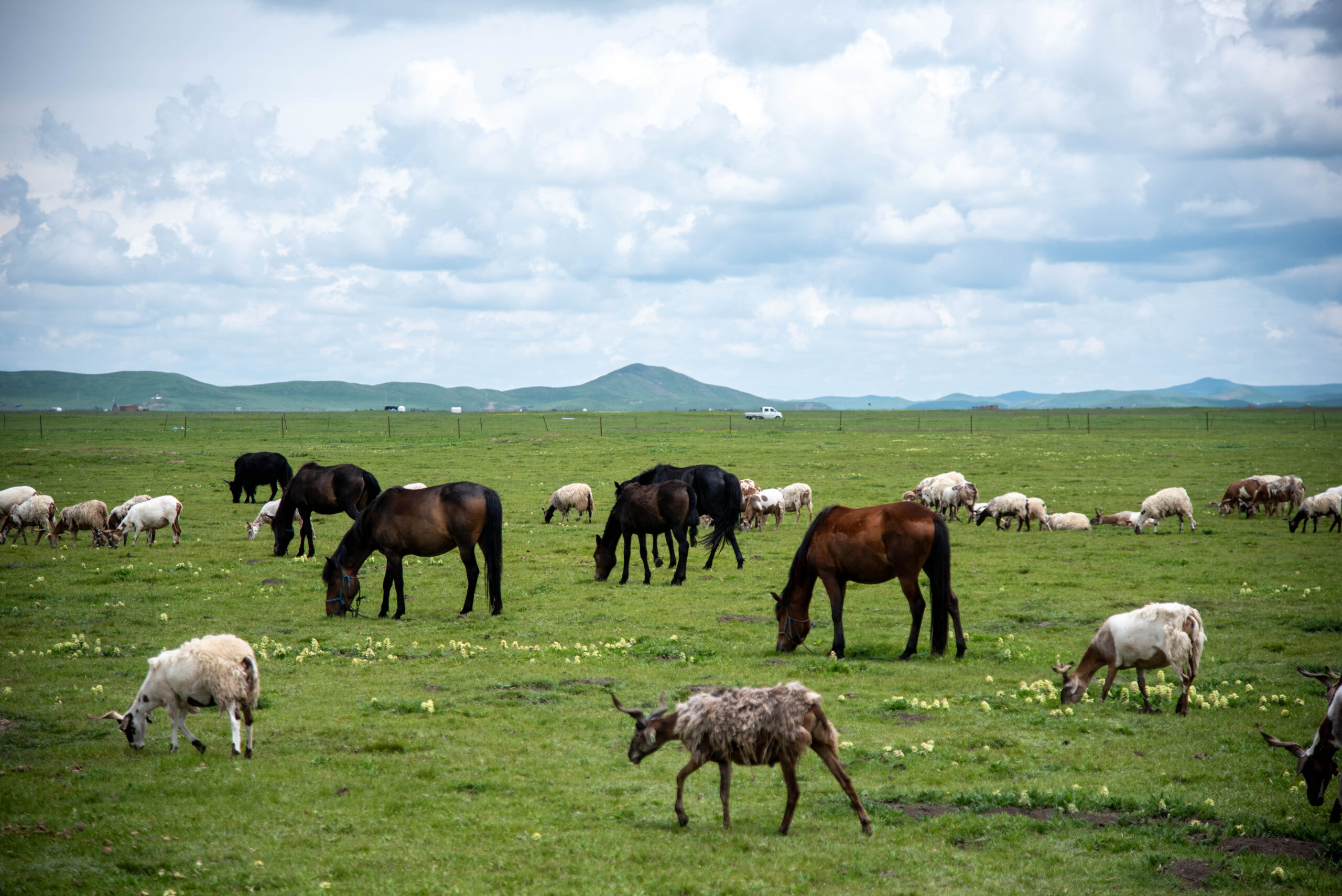
Zhuoma invited Niu Niu and us to have lunch at her home but since her boyfriend was experiencing high altitude reactions in a bad way, we decided to take it easy and lunched in town. But the electricity was cut off in “downtown” area and many restaurants were closed. We finally found a Tibetan restaurant but when we saw the daunting flight of stairs (it’s on the 5th floor), we decided to walk back to the hotel and ate at the restaurant next door.
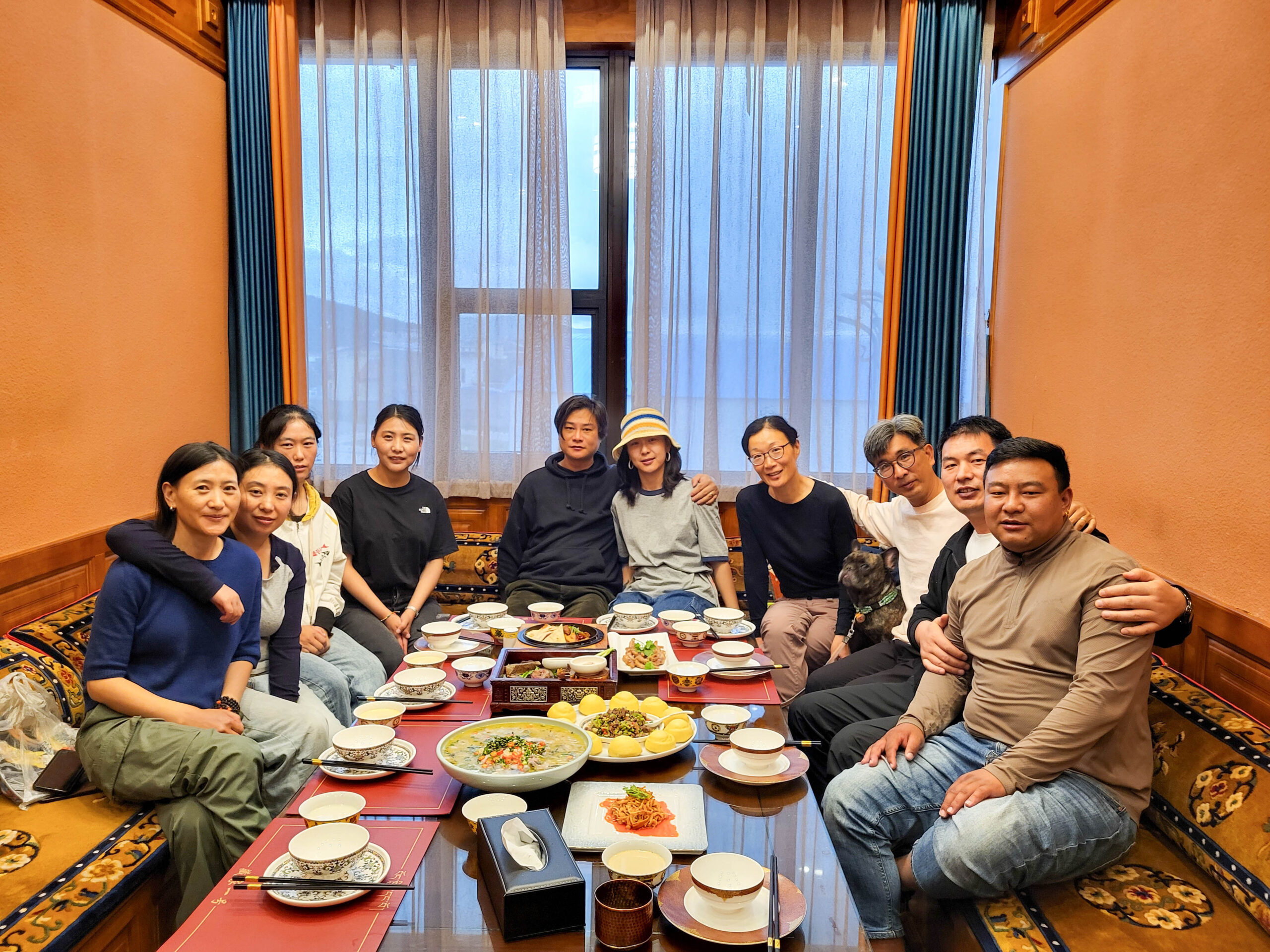
We met Zhuoma in the evening and she treated us to a sumptuous dinner at a nice Tibetan restaurant. The dinner turned out to be a huge feast and she also invited her youngest sister Luojie and her good friends and “brother” Ajia (阿甲). The waitress kept bringing into our private room delicious dishes and the conversation just flowed while we tasted all the yummy food. Zhuoma was very attentive and ordered chicken feet as she knew Niu Niu loves them. She also ordered all kinds of dishes as well as local Tibetan specialty like momo (Tibetan dumplings) to make sure that we and Ajia’s university friend from Chengdu were all well fed.
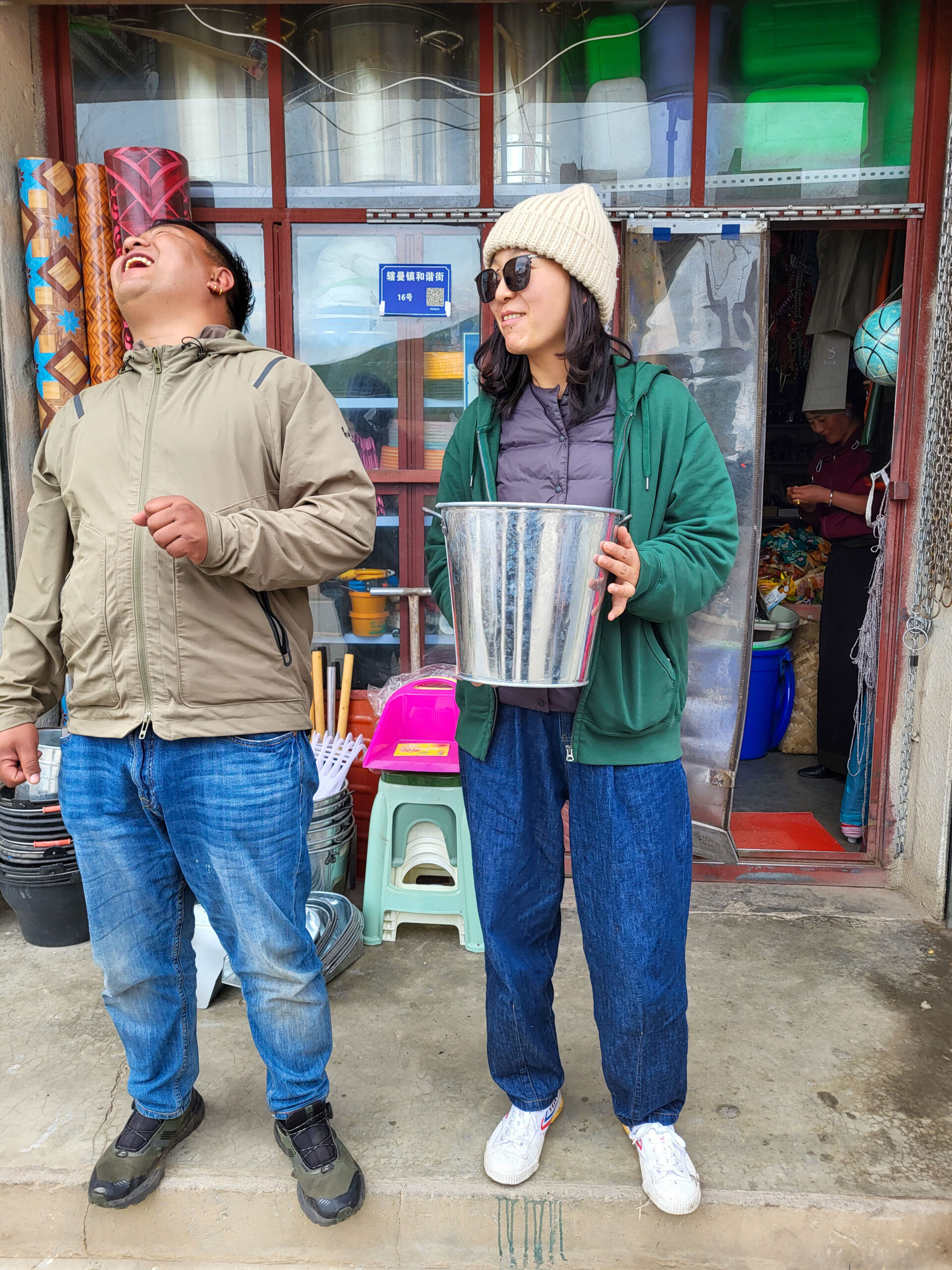
Zhuoma’s “brother”, Ajia (the term “brother” is widely used in China for relations that are not blood related) is very friendly and we all immediately took a great liking to him. He would take his friend Dashan(大山) to his own pasture the next day and so we asked if we could also go together. He asked what kind of vehicles we were driving to make sure that we could go. Ajia was so considerate and adjusted his plan by arranging us to visit his relatives’ pasture instead to shorten the journey.
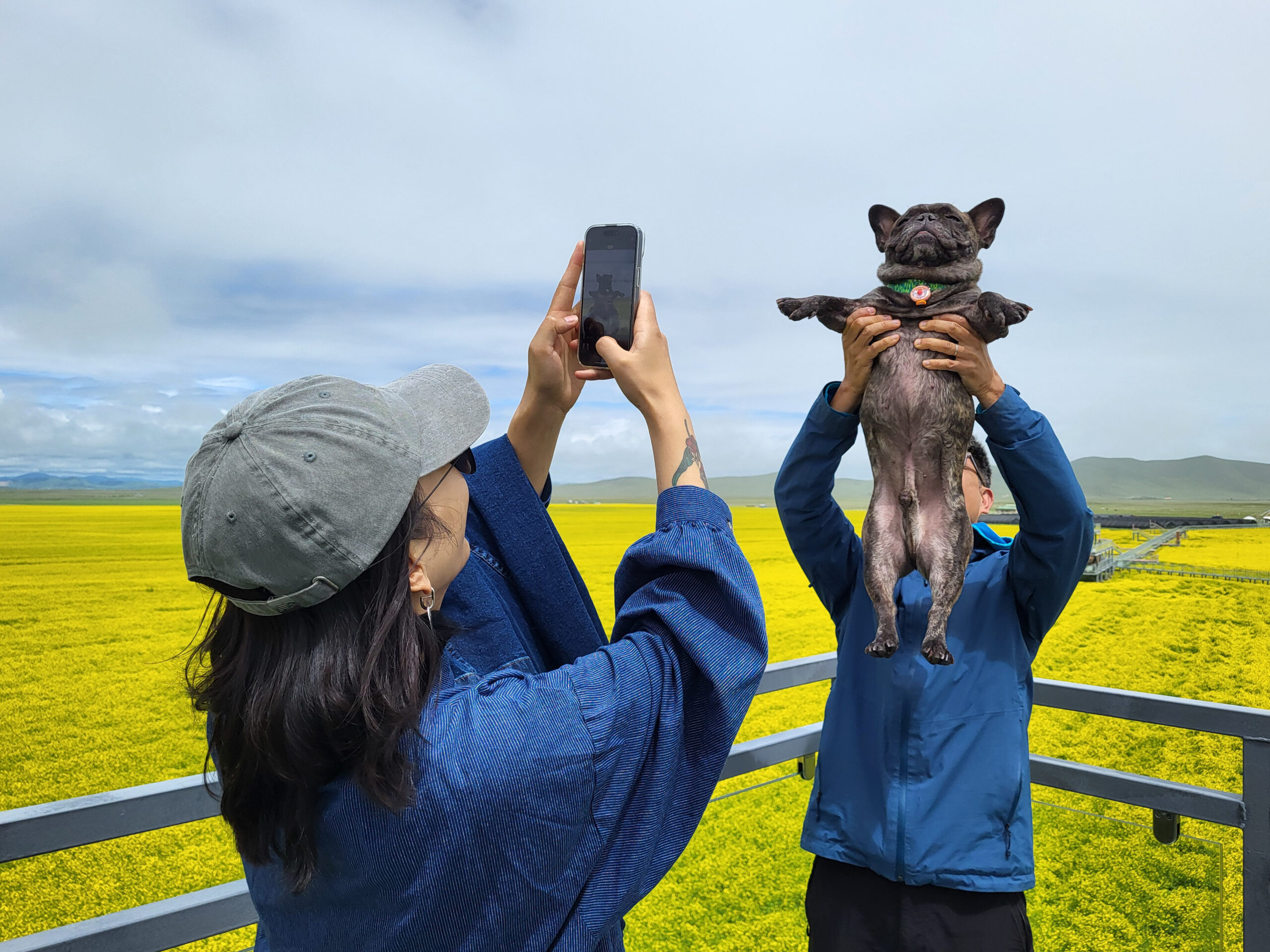
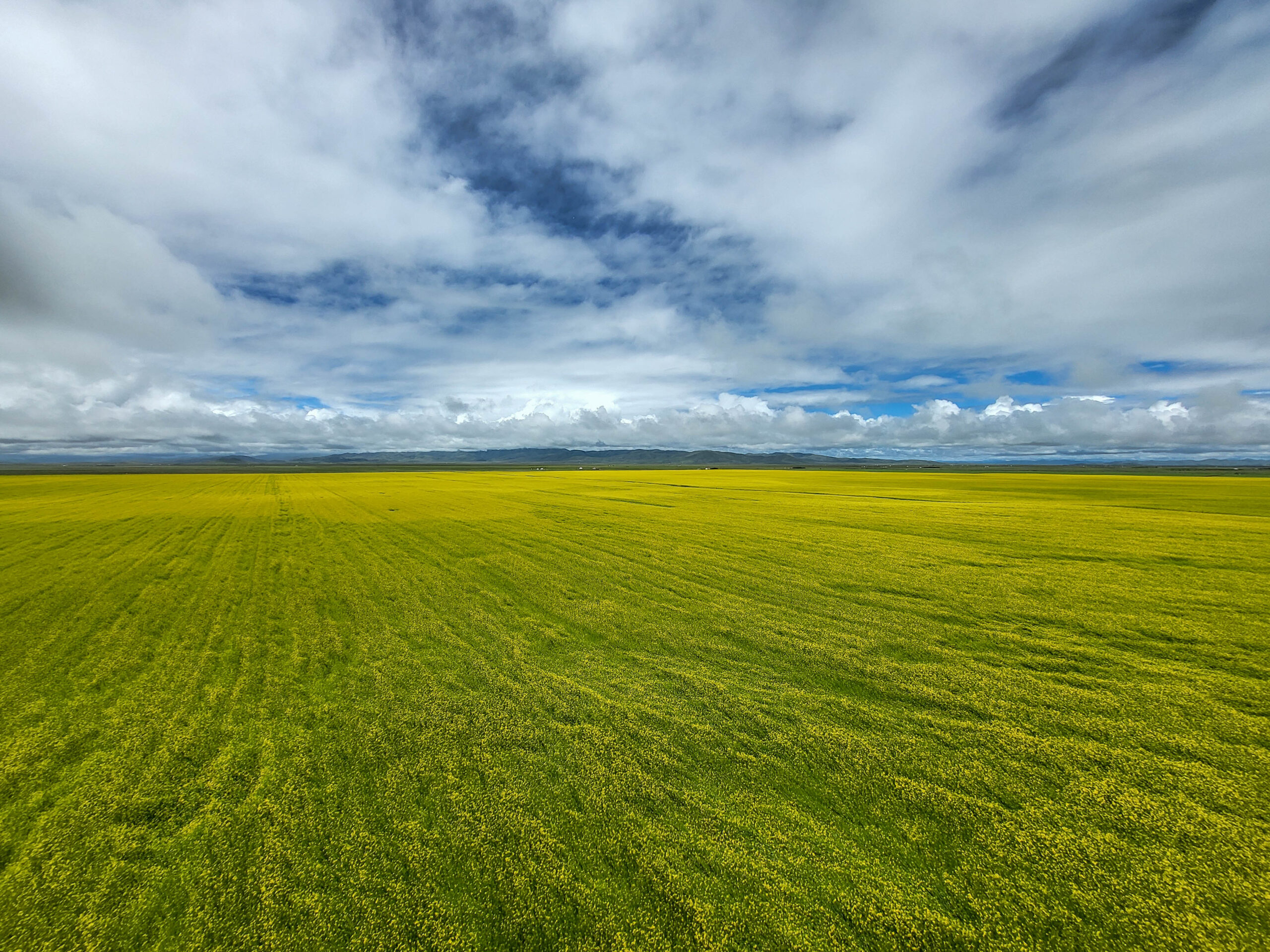
We set off around 9:30am and made a few stops to see the beautiful rapeseed fields and some scenic spots. Then we went off road into the grassland. It was quite challenging as it was super bumpy with many potholes and puddles. Ajia helped Niu Niu drive her car across the marshy puddles. He also taught Kin which track and what angle to take to drive over the more technical parts.
We arrived at Ajia’s relatives’ tent and the wife already prepared freshly made square noodles with yak. We ate inside a traditional tent made with yak hair. It felt so surreal as even though we had stayed with Tibetan people before in Tibet, it was different as they were farmers and lived in a house.
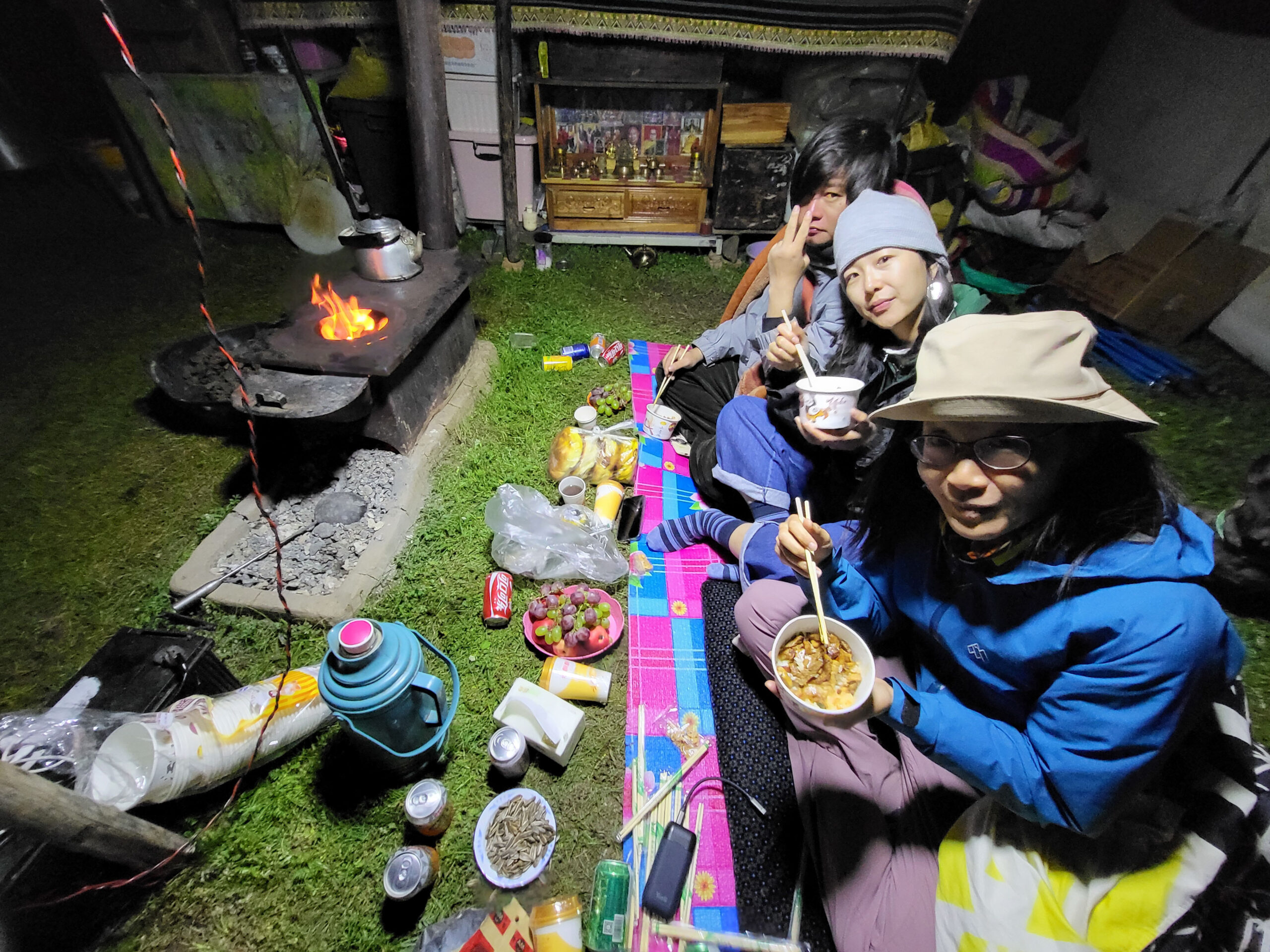
I was still not 100% adjusted to the high altitude and decided to rest after lunch. Ajia took the others up the adjacent small hill to admire the plateau. Two hours later, just when I was feeling more rested, Kin came back and said Ajia insisted on getting me so that we coud all see the sunset by the Yellow River.
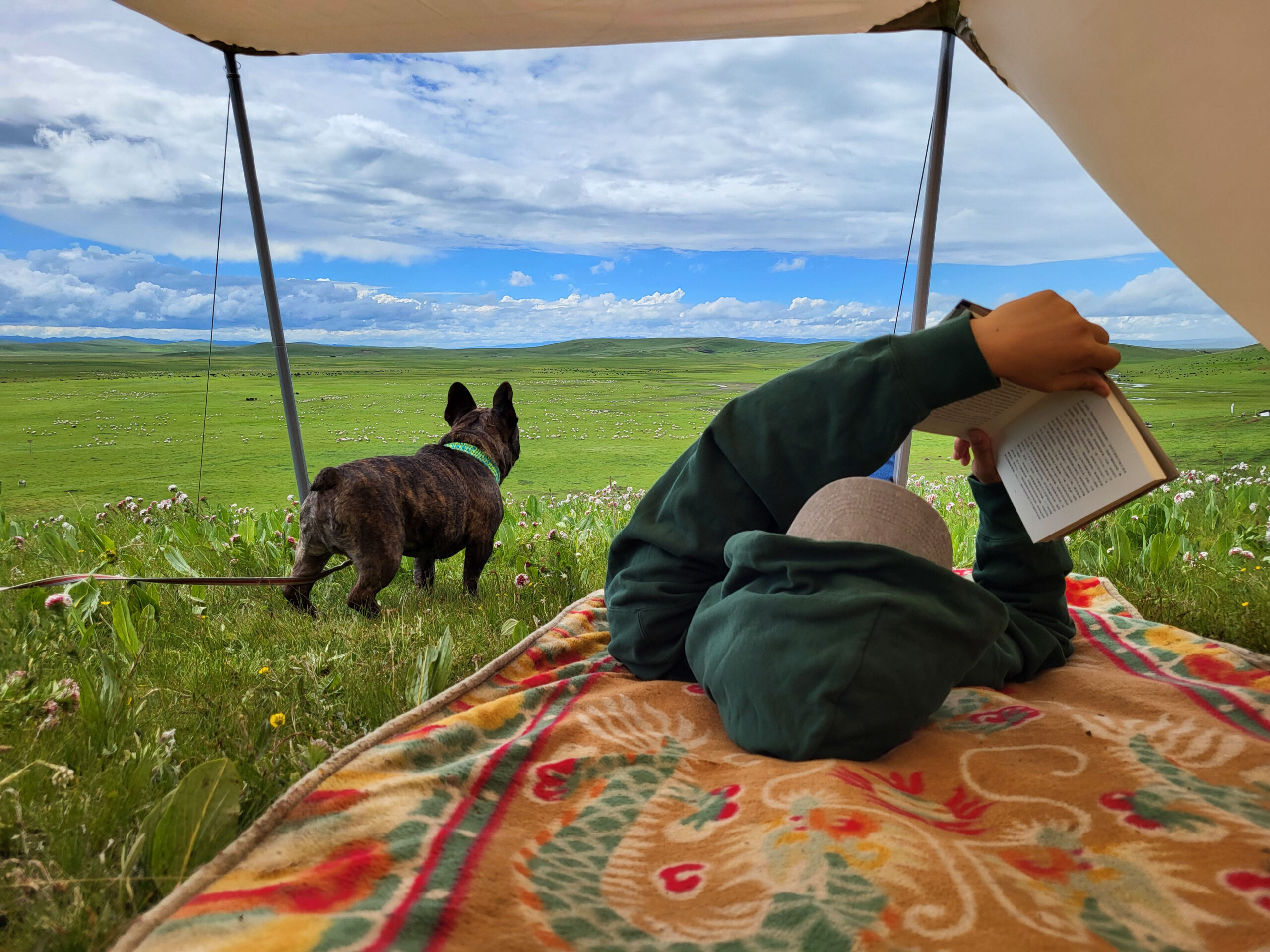
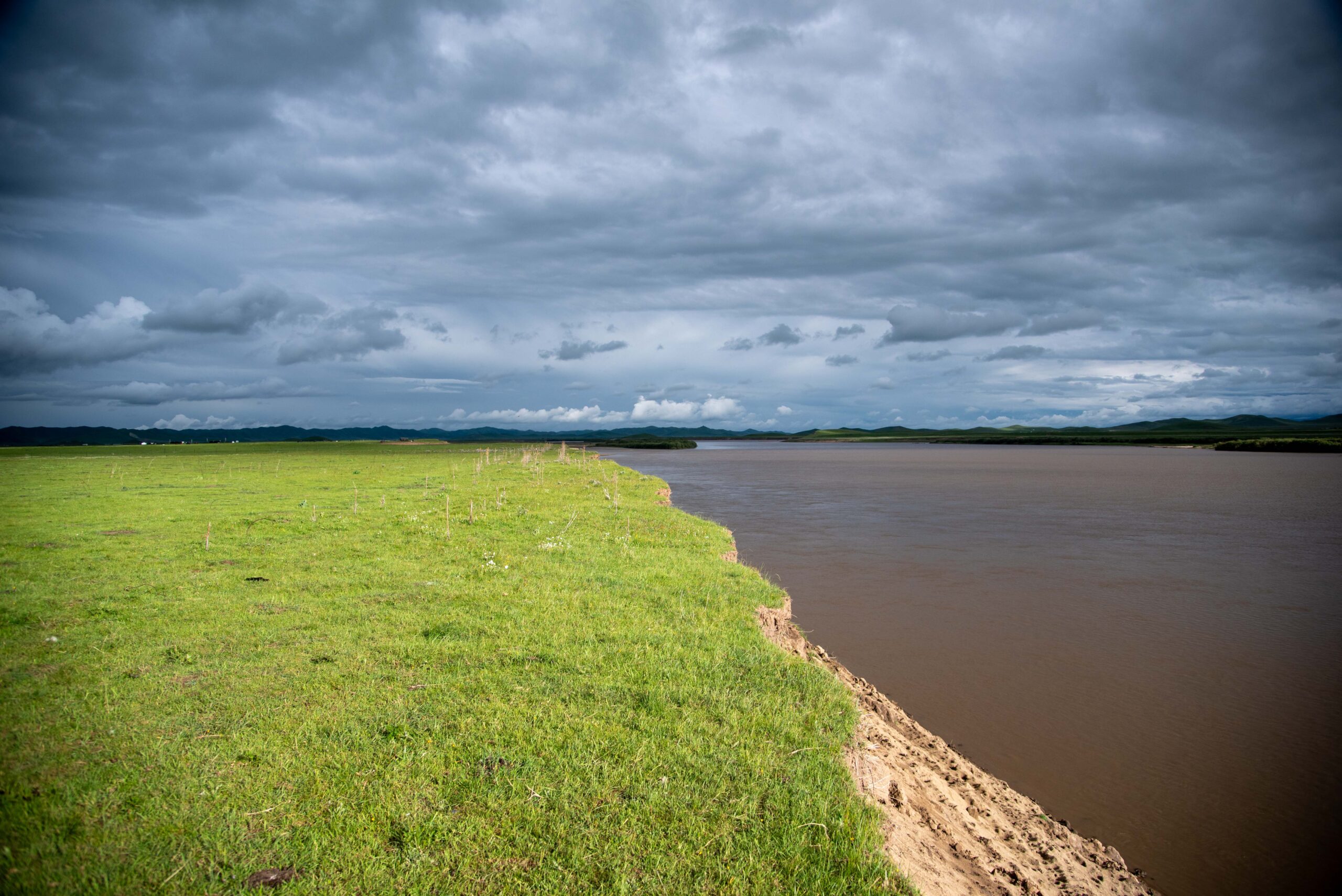
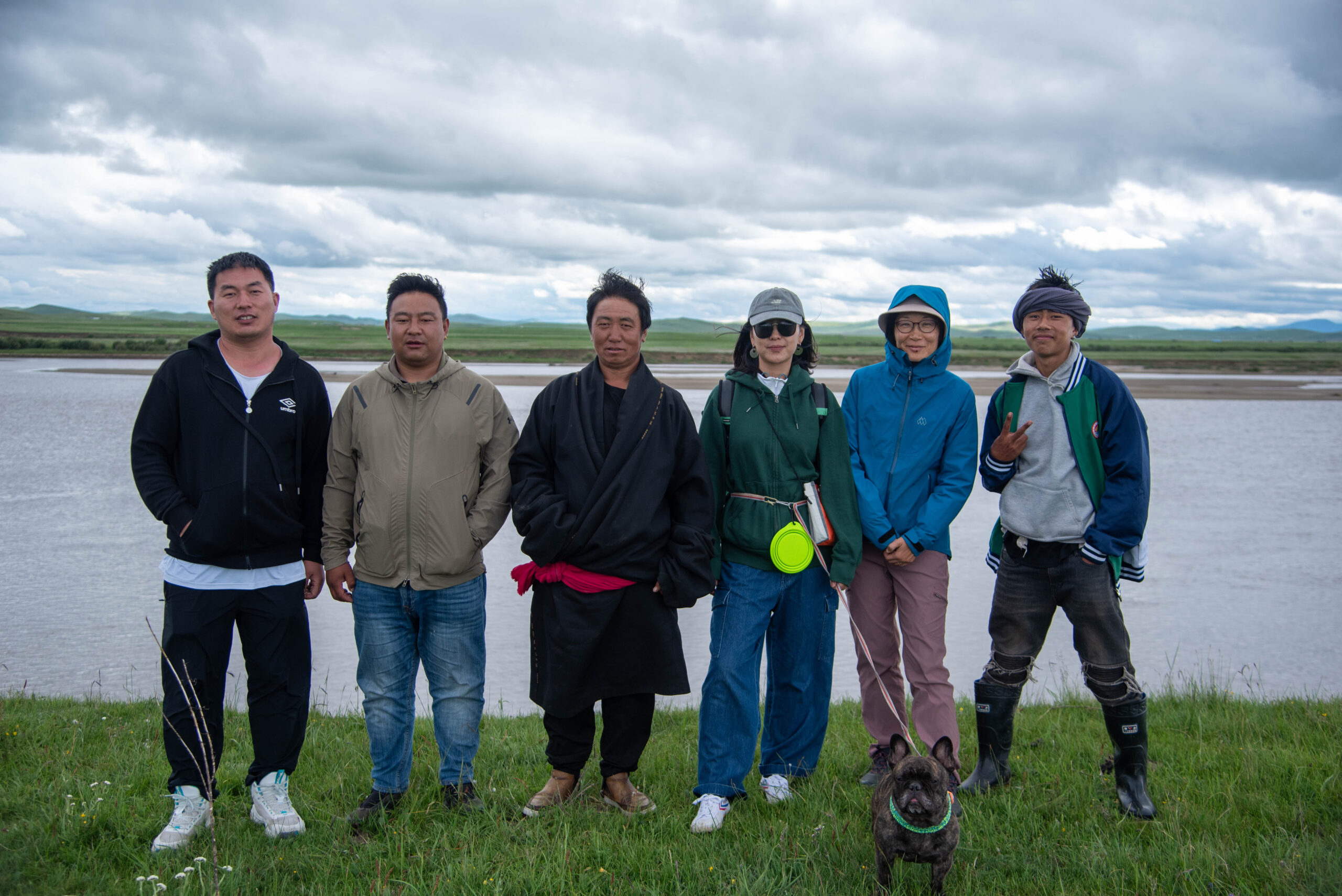

We knew that Tibetan way of life is very environmentally-friendly and sustainable. But when we actually stayed in a yak hair tent with the stove partly made of clay from the Yellow River and a huge pile of yak dung at the entrance of the tent used as fuel for the stove, we couldn’t help being amazed by how they fully treasure what the nature gives them and wouldn’t waste anything.
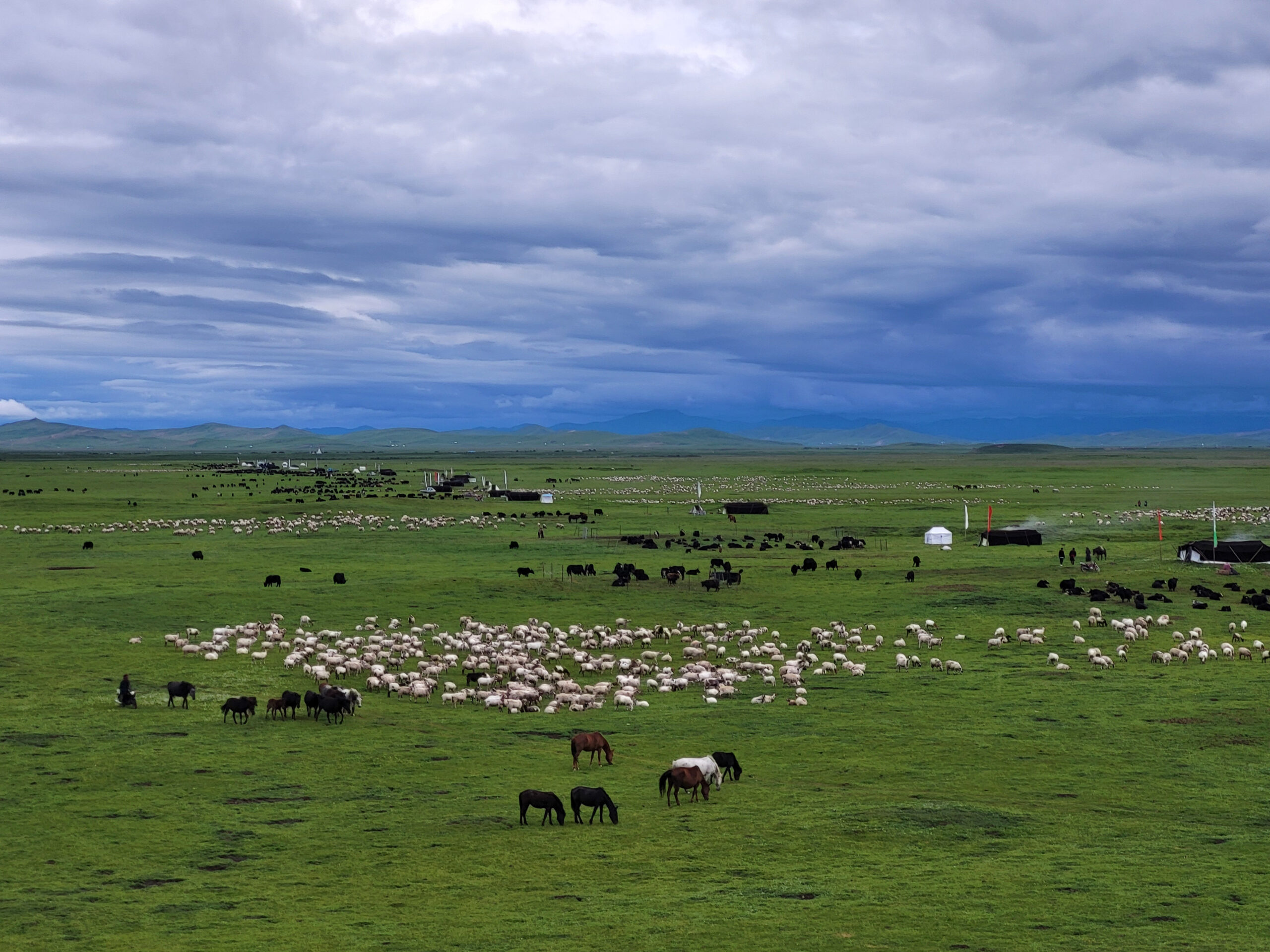
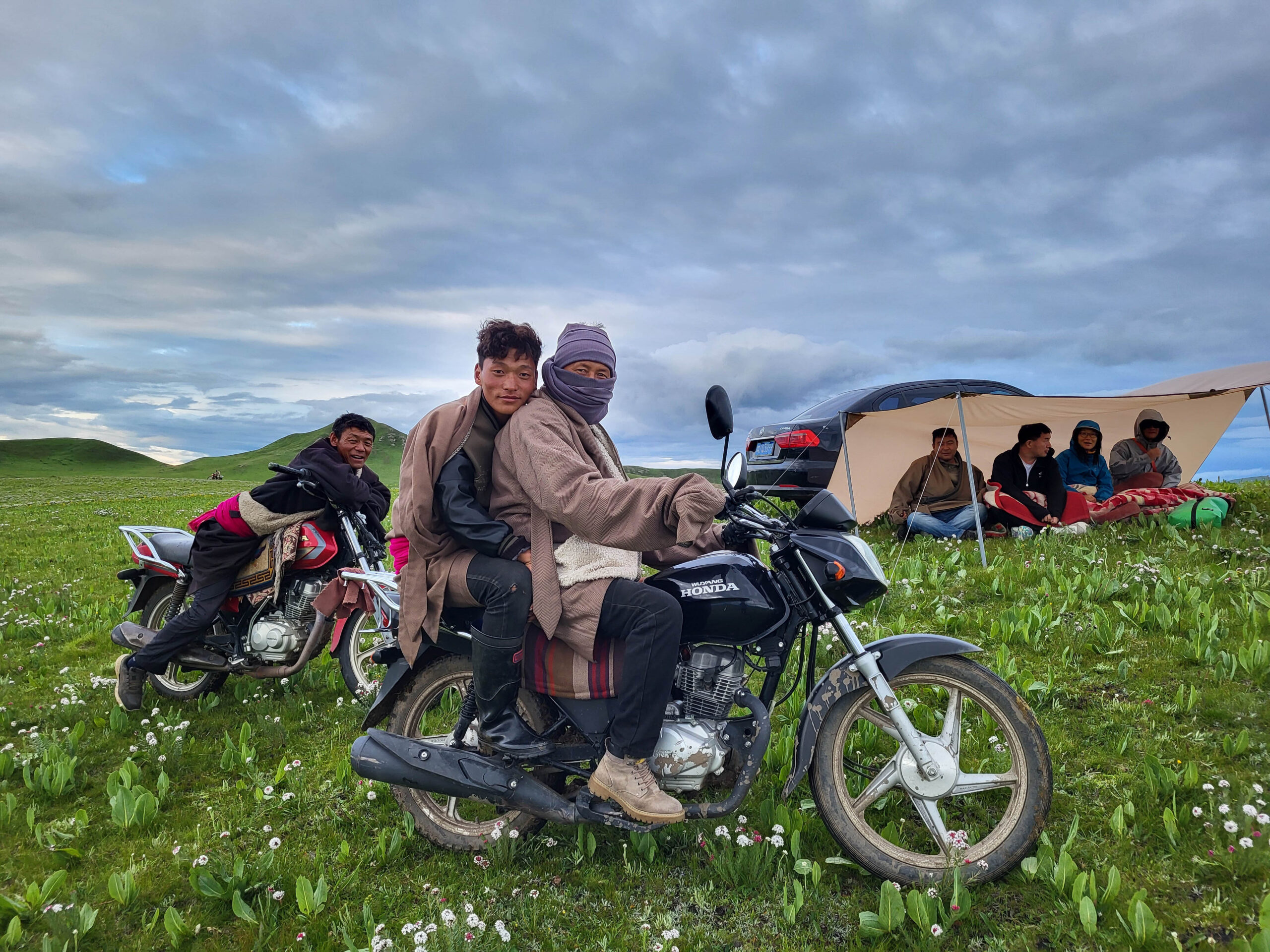
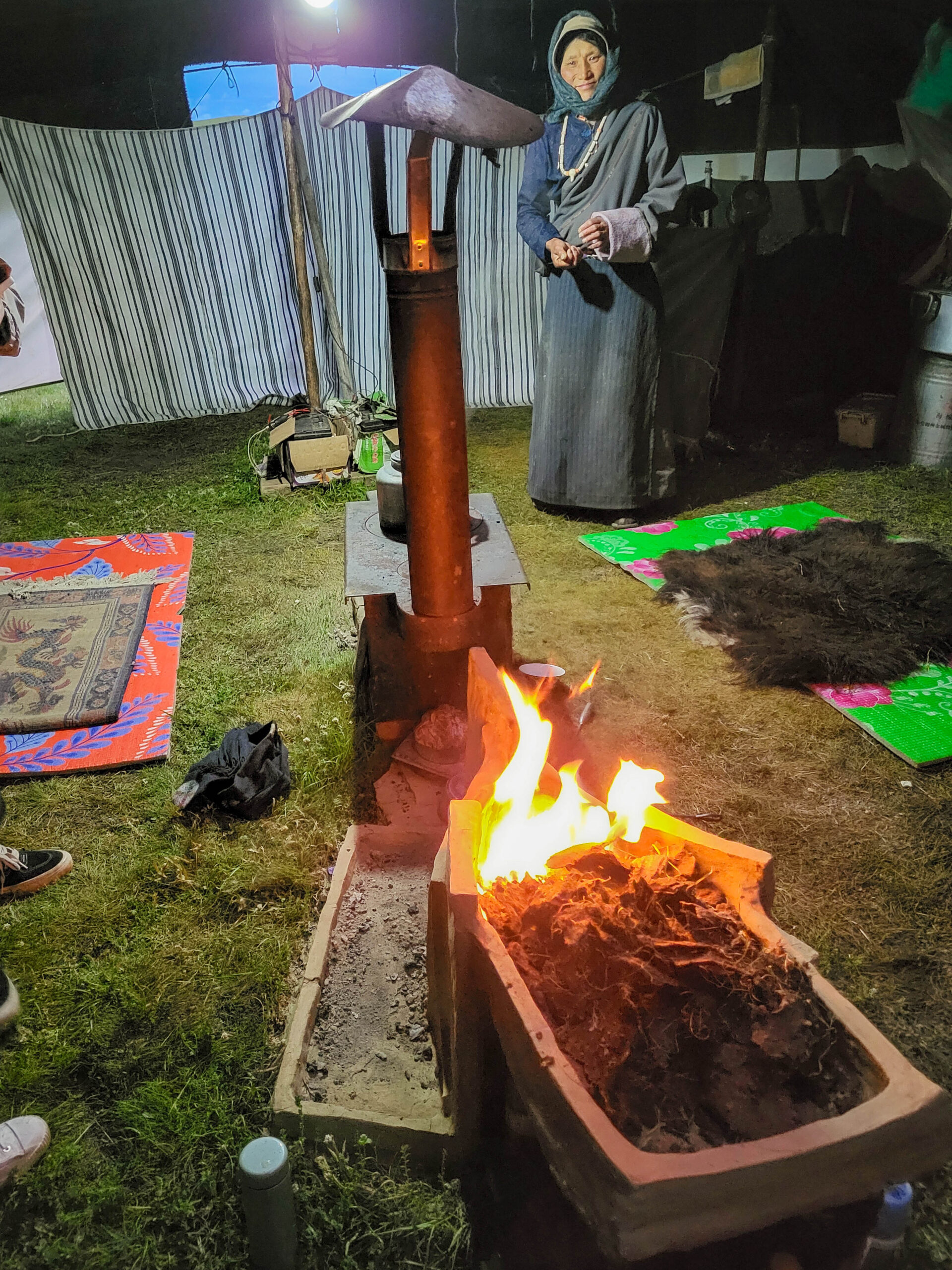
We spent the night in our van while Niu Niu and her boyfriend slept on one side of the tent while Ajia and Dashan on the other side. We slept well in our snuggly sleeping bags and the van was pretty cozy since it was not too cold. Niu Niu knocked on our door in the morning and told us about her cold sleepless night in the tent. When she finally fell asleep late in the night, Monkey started barking at the wolves in the grassland. She envied our cozy set up and we suggested her to take a nap in our van.
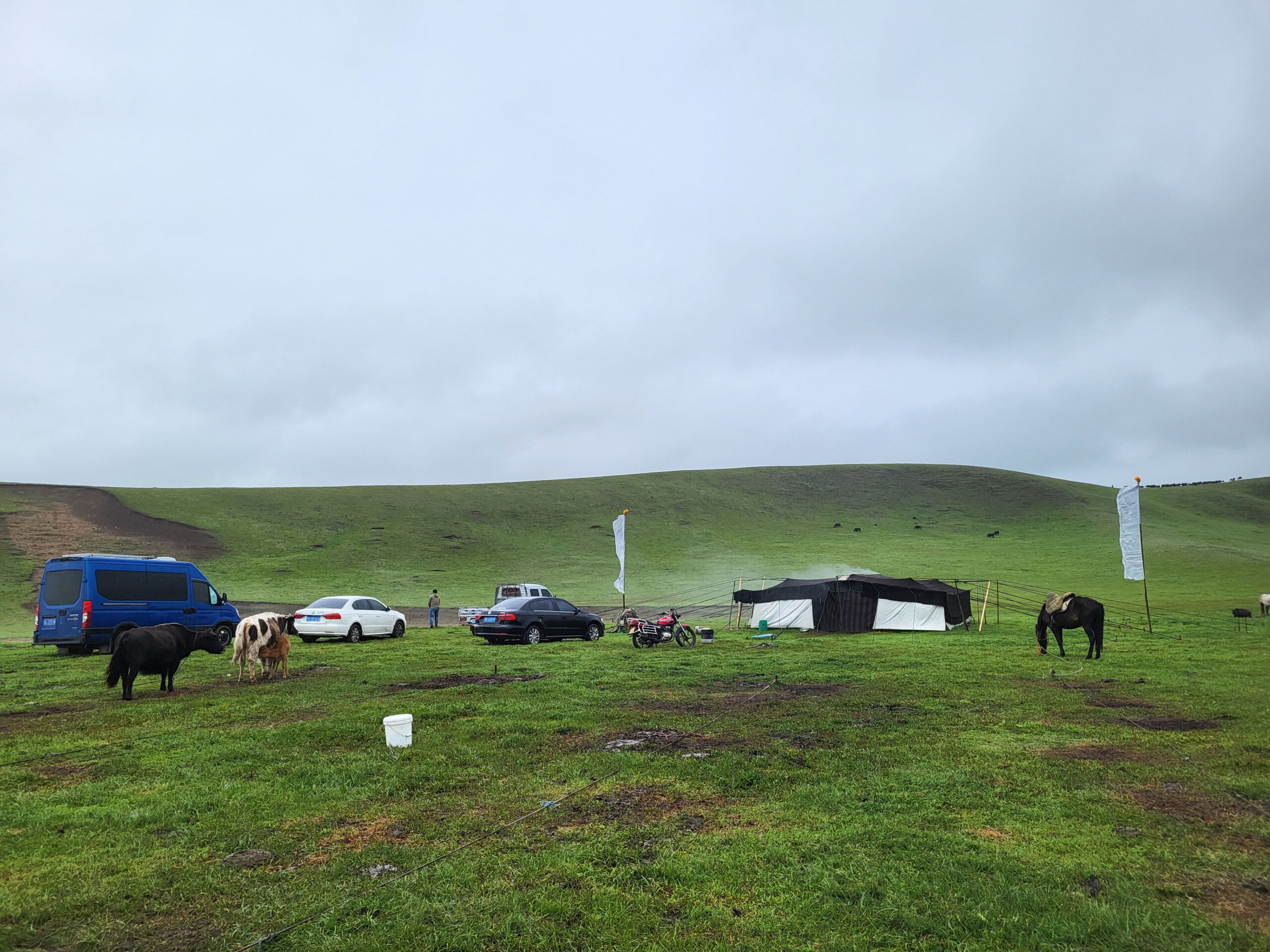
But there was another knock on our van door and Ajia asked us to have breakfast. Tibetans usually have Tsampa (糌粑) for breakfast and throughout the day. It is a dough made of Tibetan black barley (also called hulless barley) powder, yak butter and water. Every household has a beautiful small wooden box to hold the barley powder and yak butter. They put a spoonful of yak butter in the tea bowl, add some hot water and then a few spoonfuls of Tibetan black barley powder. They then mix and press the ingredients into a small firm dough with their hand. They pinch a morsel and eat it with Ma tea, a light tea with yak milk which has a slight hint of herbal bitterness.
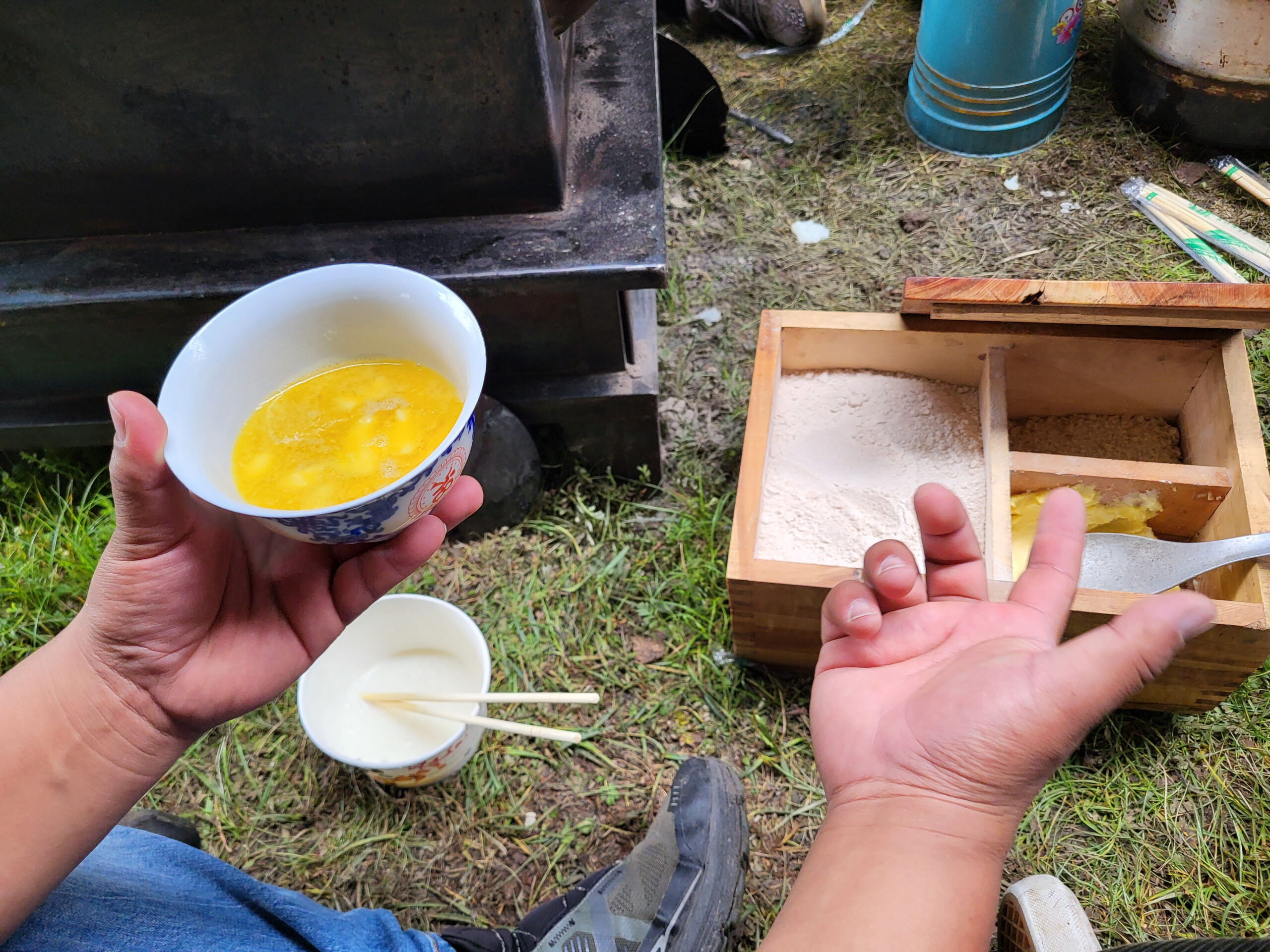
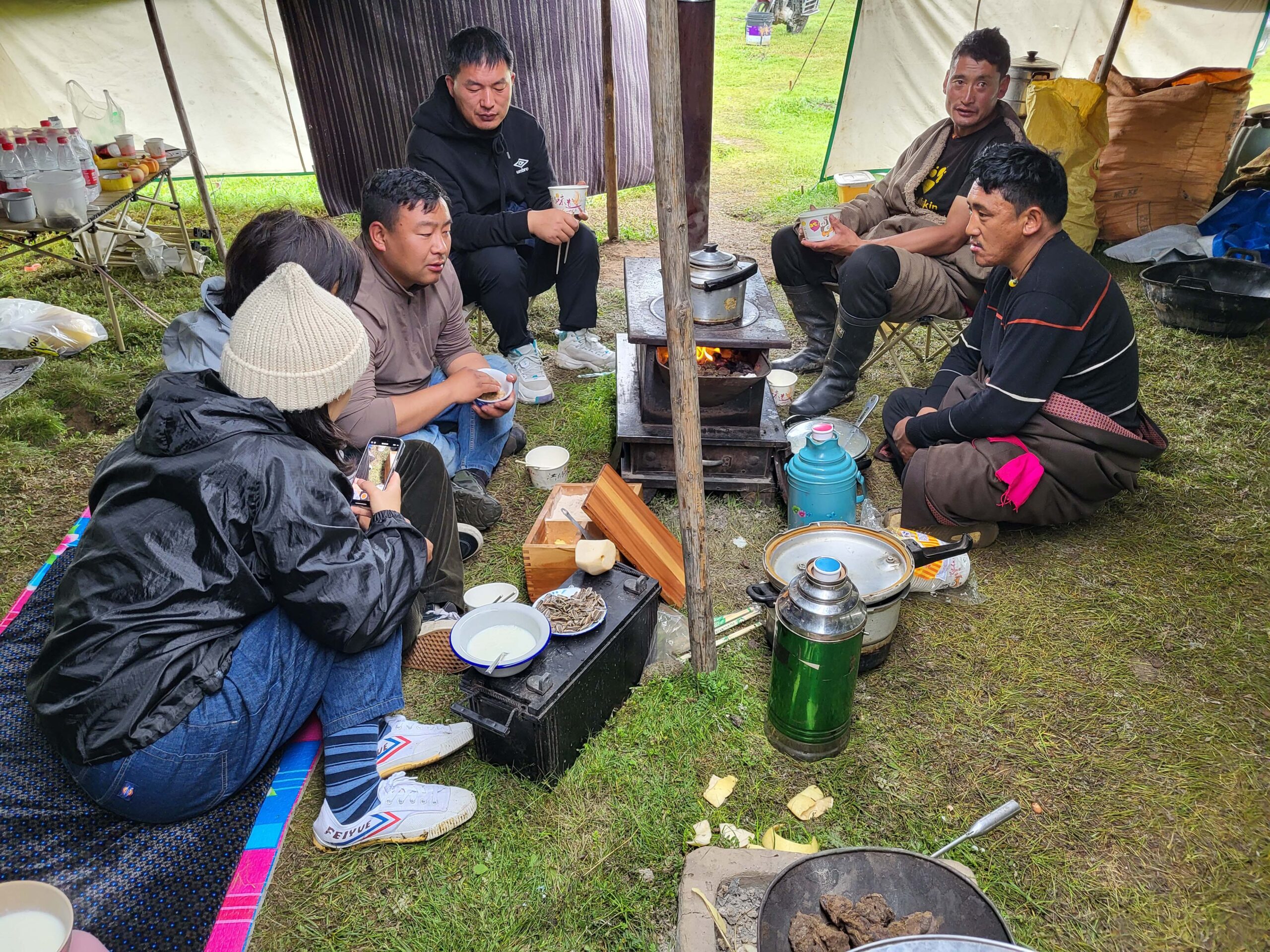
However, we didn’t have Tsampa for breakfast. They specially prepared sweet congee for us. After breakfast, Niu Niu and I followed the wife to see how she milked the yak. It’s one of her daily chores and she only milked enough for one day’s use – for tea and making yogurt.
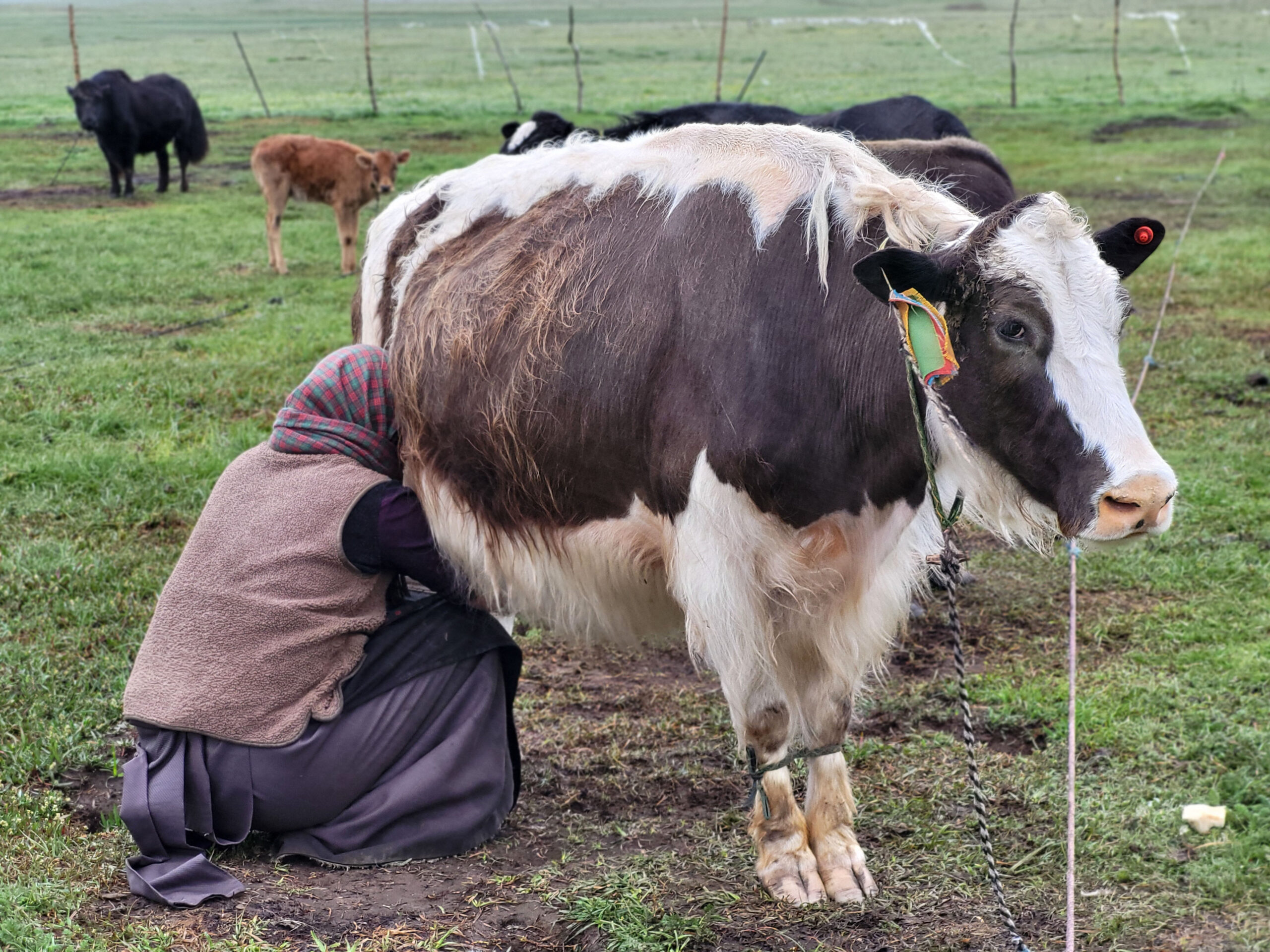
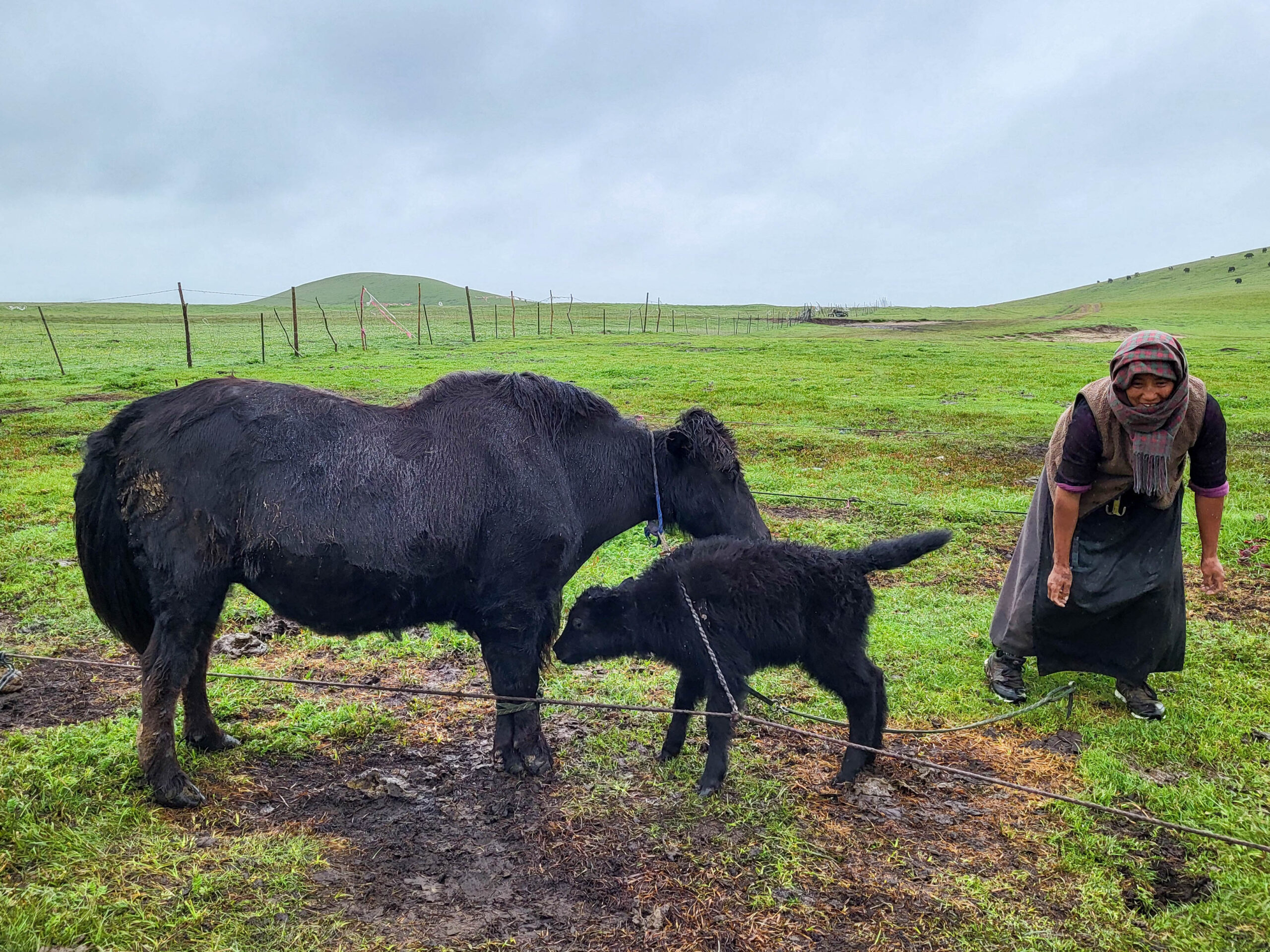
We often take things for granted and won’t bat an eye for any of the conveniences and comforts we enjoy in our city lives. But life in the grassland is labour intensive to say the least. The wife had to fetch water from a nearby well. They treasure each drop of water. For big occasions, they would arrange a huge plastic water tank for cooking and washing. Even when they live in a house, they often don’t have tap water as the pipes are always broken after the freezing cold winters. So, they keep a big pot of water and use a small pail to get enough water for various uses. They won’t throw the used water down the drain but keep it. We also saw styrofoam boxes outside shops and houses on the street to hold rainwater.
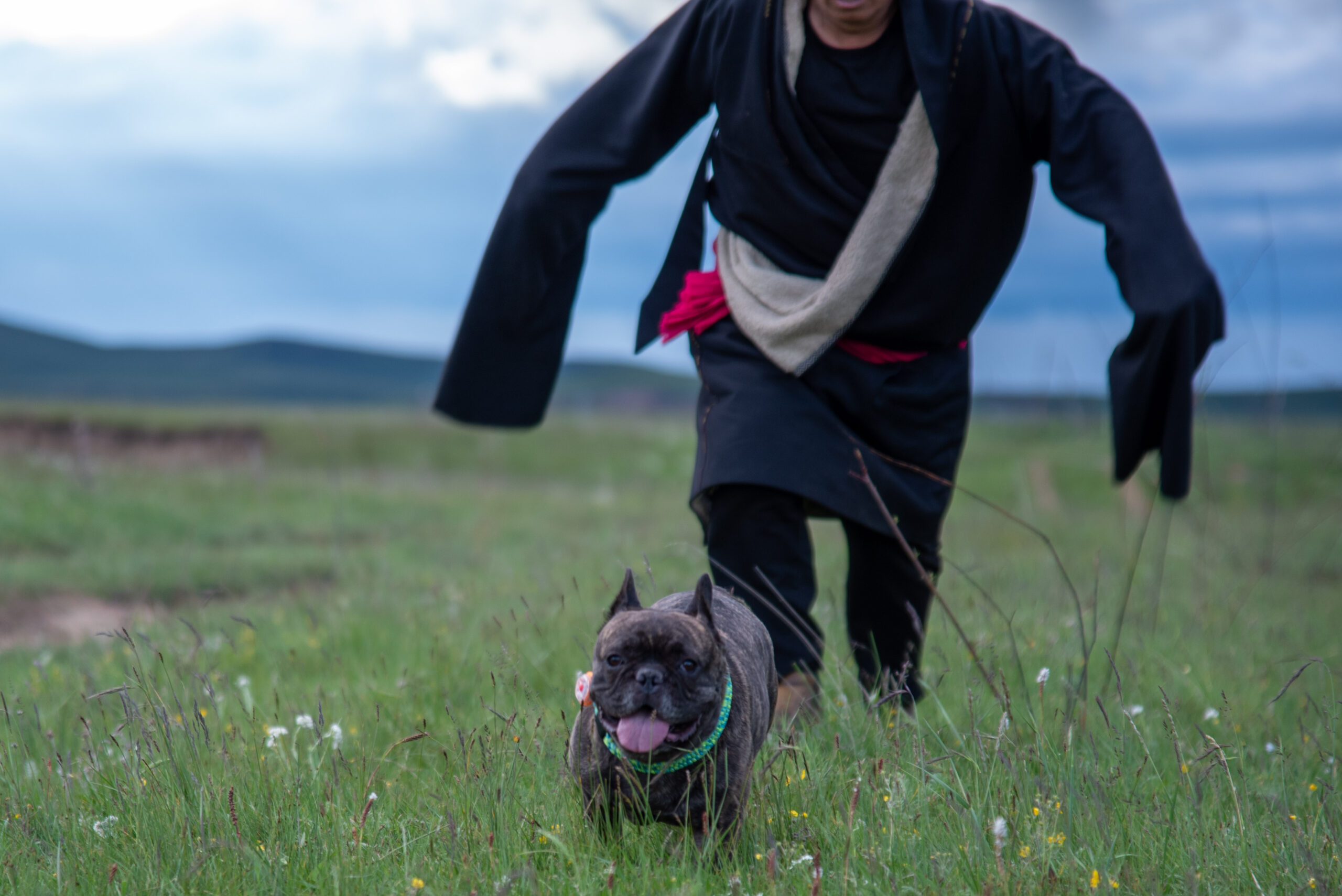
Tibetans have a very different view of animals and living creatures. We often strike or kill whenever we see a fly or mosquito. But they will not harm any creatures unnecessarily. They eat yaks and goats for survival as very few crops can be grown at such high altitude. They are pained to kill and eat the animals they raised. Zhuoma once told me that she got palpitations when she saw a sheep being killed. Their daily prayers are also their way to reduce their sin of killing animals. But, of course that’s only one of the purposes of their prayers as it meant so much more. They do not pray for themselves but for the good of all living beings and things.
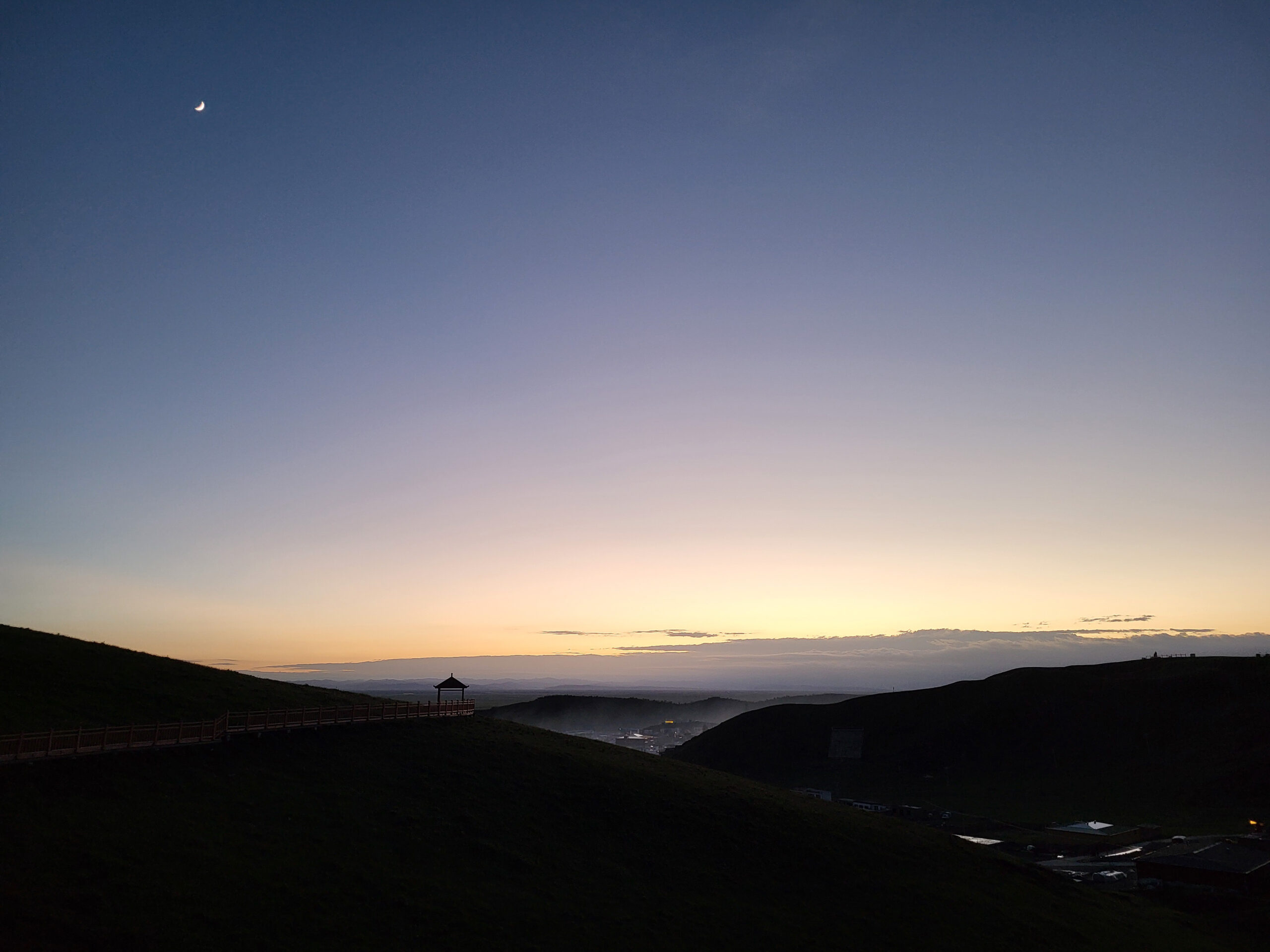
It was the first time for Monkey to take such a long trip and he was super excited in the grassland. We had to keep an eye on him partly to make sure he was fine at high altitude. It’s hilarious to see the reaction Monkey aroused among the locals – bearing in mind that they keep big Tibetan dogs in the grassland to guard their livestock from the wolves.
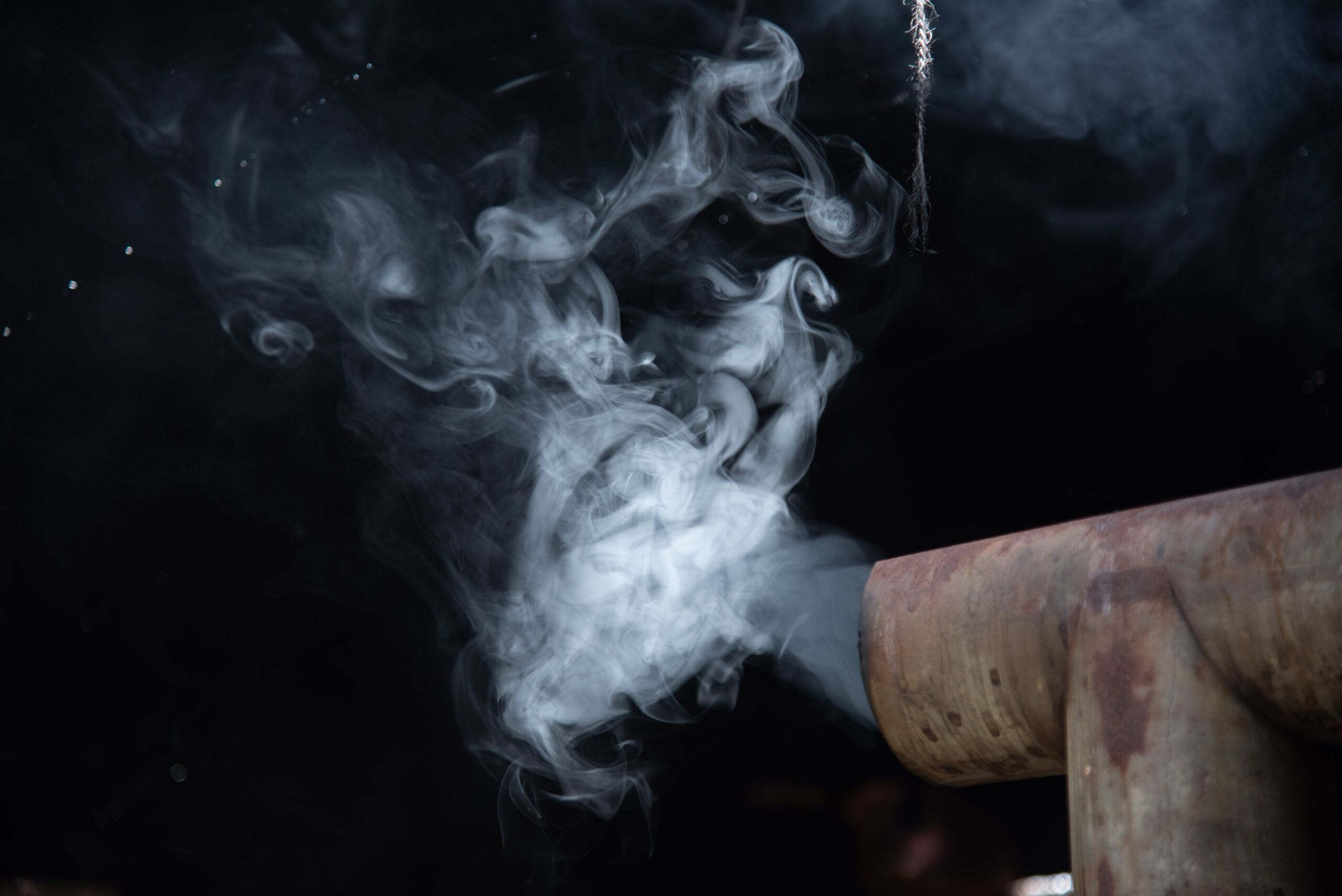
Every time a Tibetan saw Monkey the first time, you could tell that he or she was fascinated and would stare at Monkey. But the nano second Monkey approached, they always took a step back or uttered a faint yelp fearing Monkey might bite. But then they loved him in no time.
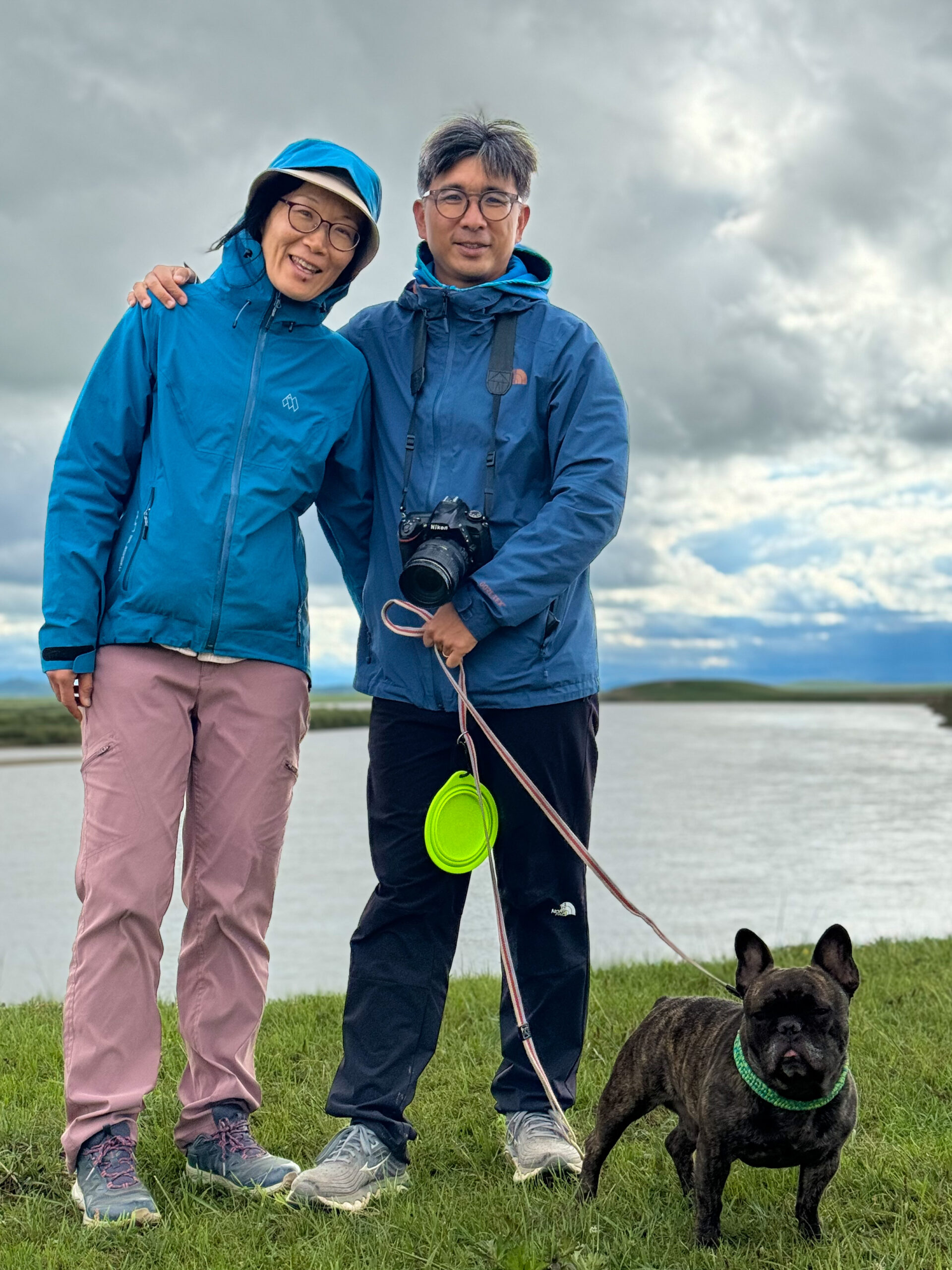
The wife’s initial reaction towards Monkey was the same. But she soon fell utterly in love with Monkey. She kept feeding him watermelon and yak yoghurt. She doesn’t know Putonghua but she saw how I put the food in front of Monkey and asked him to wait until I gave the “OK” command. She immediately copied me and said “OK” to Monkey. She was overjoyed when Monkey followed her command.
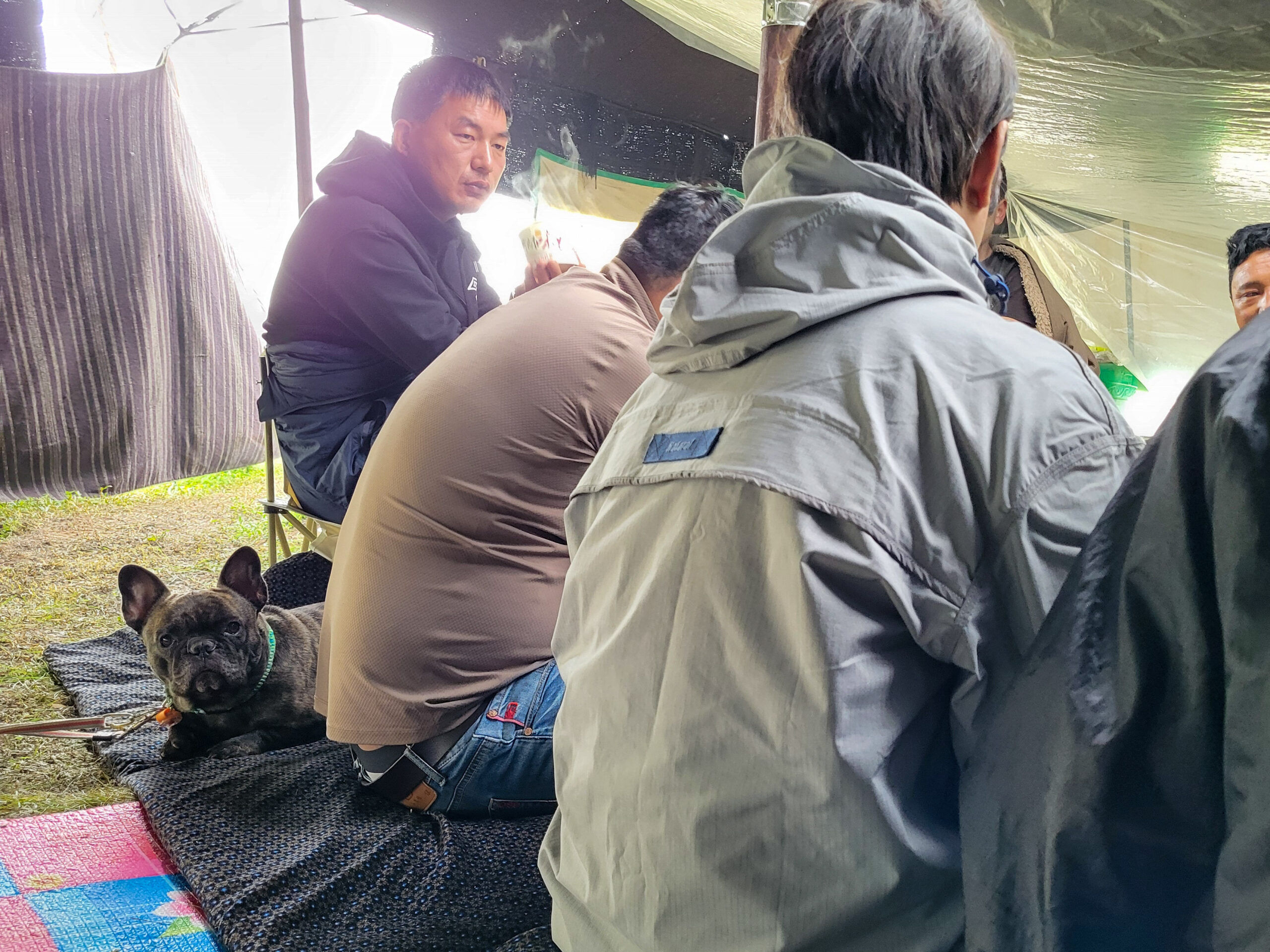
When we were busy eating or engrossed in a conversation inside the tent while Monkey was bored and crouched between people, the wife would quietly go to him and fed him food again. It’s so adorable to see how they bonded. I even overheard her saying his name many times when she was alone in the tent while we were outside packing our things and getting ready to leave.
We said goodbye to Ajia’s relatives in late morning and left the grassland to go to Ajia’s hometown, Xiaman(轄曼). Ajia led the way and we slowly followed. It was even more bumpy than when we came as it rained the whole night. I could see the main road but it seemed to take eternity to get there. After 20 minutes of painfully slow drive, we finally got to the edge of the grassland. Just when we were about to turn into the main road, we heard a big bang and came to an abrupt halt.

Idiotic Kin was too busy looking at Niu Niu’s car which stopped on the left side of our van that he didn’t see a concrete stump right in front of us and smashed right into it. We all got out of the cars and found that the left front tyre burst and the van was stuck. Ajia immediately assessed the damage and thought that it was mainly the burst tyre. Kin and I got the tools and spare tyre out. Ajia instantly took off his Tibetan robe and lied flat on the ground to jack the van up despite the rain was pouring down. His friend Dashan also helped and made sure Ajia didn’t get soaking wet.
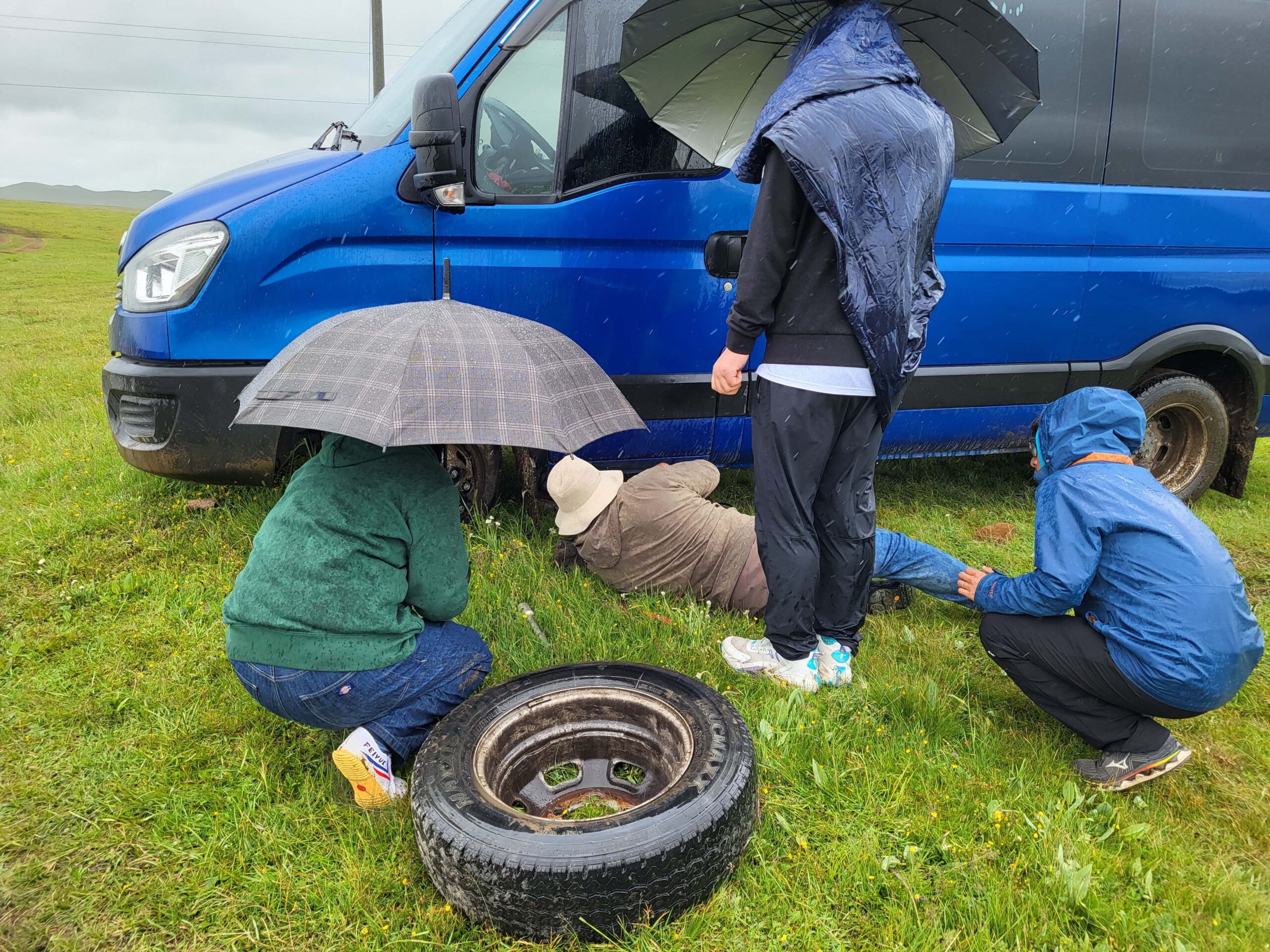
But our van was stuck in such an awkward angle that our jack was not strong enough to lift the vehicle. Since we needed a better jack and it was raining cats and dogs, Kin and I jumped into Ajia’s car and we went to Xiaman to have lunch first. Also Niu Niu had to leave soon after lunch as she needed to return to Yangzhou and had a long drive back.
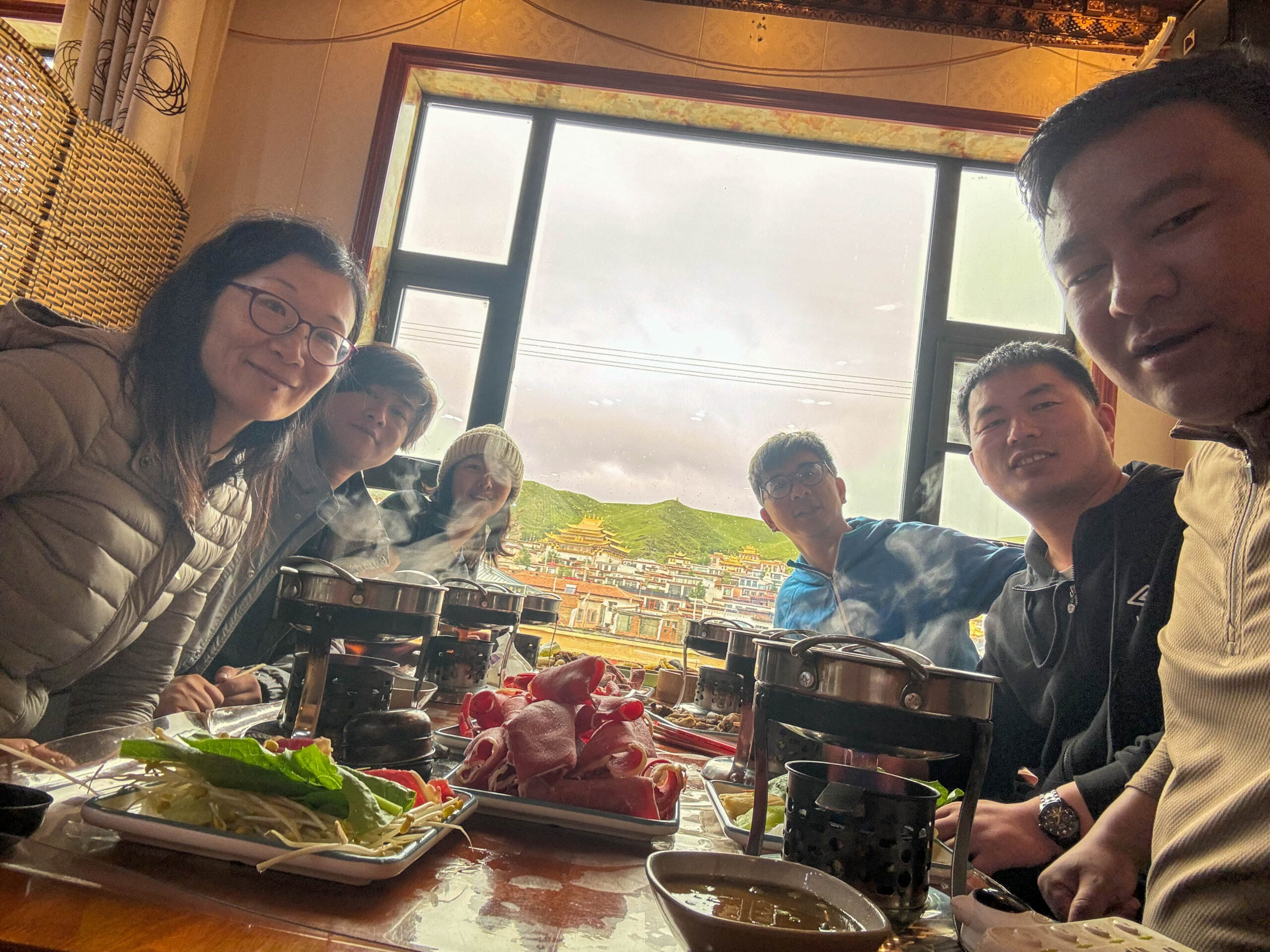
Ajia took us to a nice little hotpot buffet restaurant. We chatted and had a relaxing and tasty lunch. I almost forgot about the accident and wasn’t at all worried about our van stuck in the peat in heavy rain. Having been on the road for four years and experienced all kinds of minor accidents and issues, we always take things in stride. Similar to the Tibetan way of thinking, we realize that we are never in control even though we human beings often think that we can plan and control all things. We can only go with the flow and not overthink and stay positive.
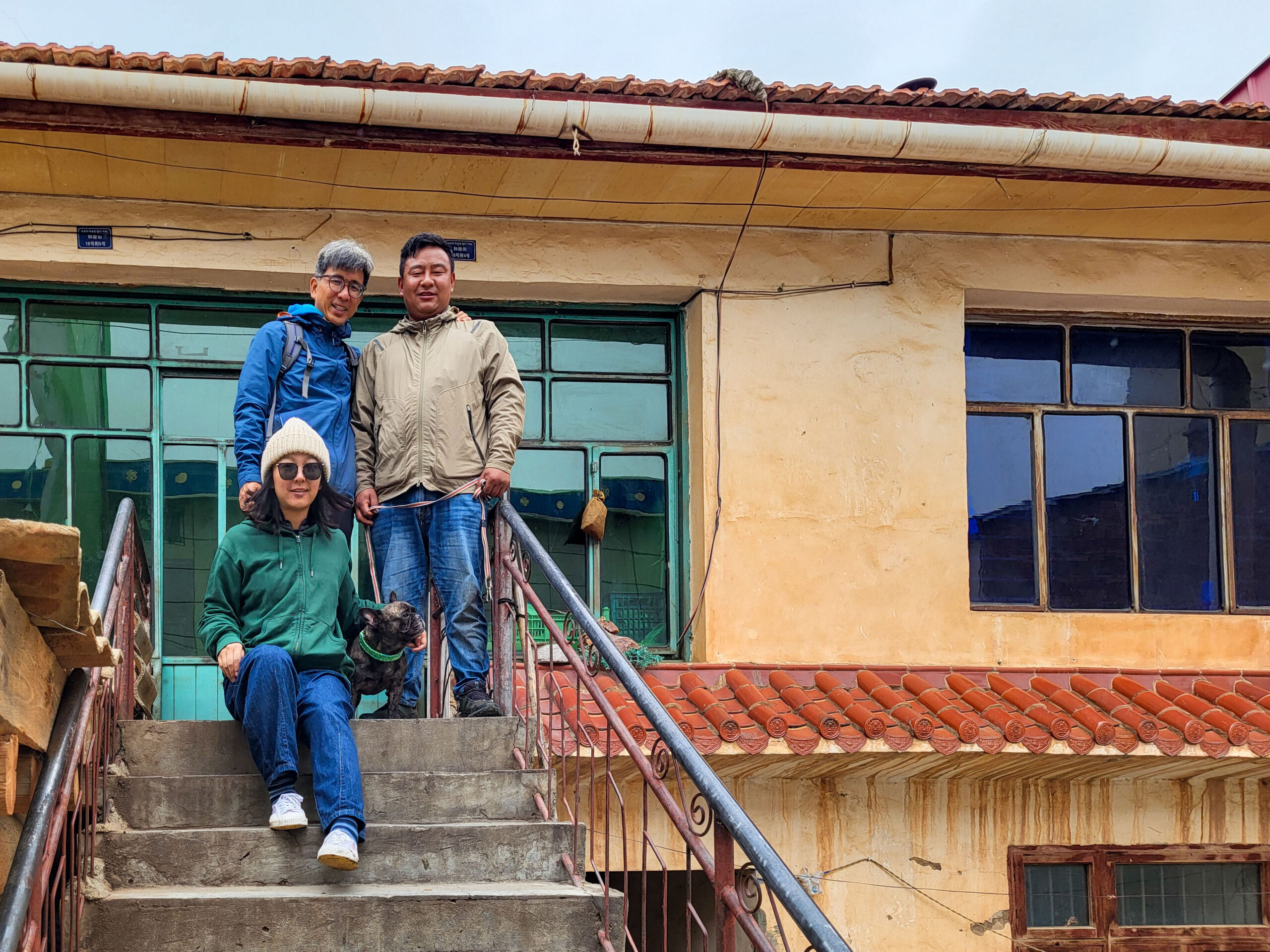
But, there is one thing for certain: things would have been much worse or even horrific for us if Ajia didn’t help. Kin is usually pretty resourceful and practical but being stuck in the grassland is entirely another matter. We were absolutely clueless and helpless in this predicament.
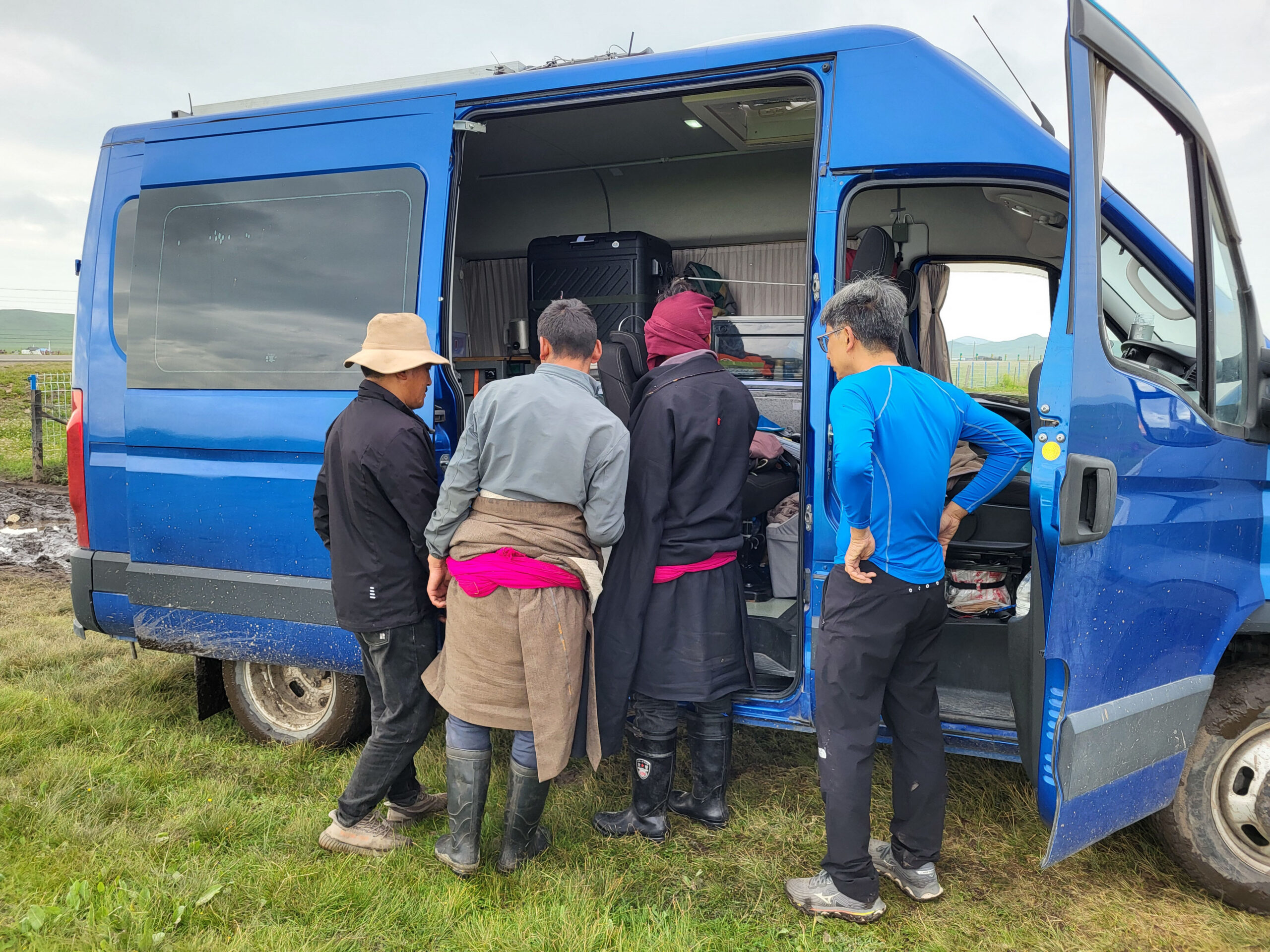
Ajia is not only knowledgeable and resourceful, he’s kind and gives it all to help anyone in need. He could easily call the car repair man which was only a few kilometres away to come and change the tyre. But he did it all by himself. He borrowed a truck jack, then jacked the van up, changed the tyre and then step by step instructed us how to stack small rocks behind the front tyre and told Kin how to turn the tyre inch by inch and reversed slowly away from the concrete pole. He even reminded Kin to check the car later as he noticed a slight imbalance of the van.

As we spent more time with him, we saw everyone in town went to him for help with things great and small. He had helped the town organize the school construction project. One time, Ajia was driving (with us at the back) slowly up the road and a guy went up to him. Just when I was wondering what was happening, Ajia showed him how to tie a ribbon bow to decorate the car. Ajia is the go to person when it comes to any issues.
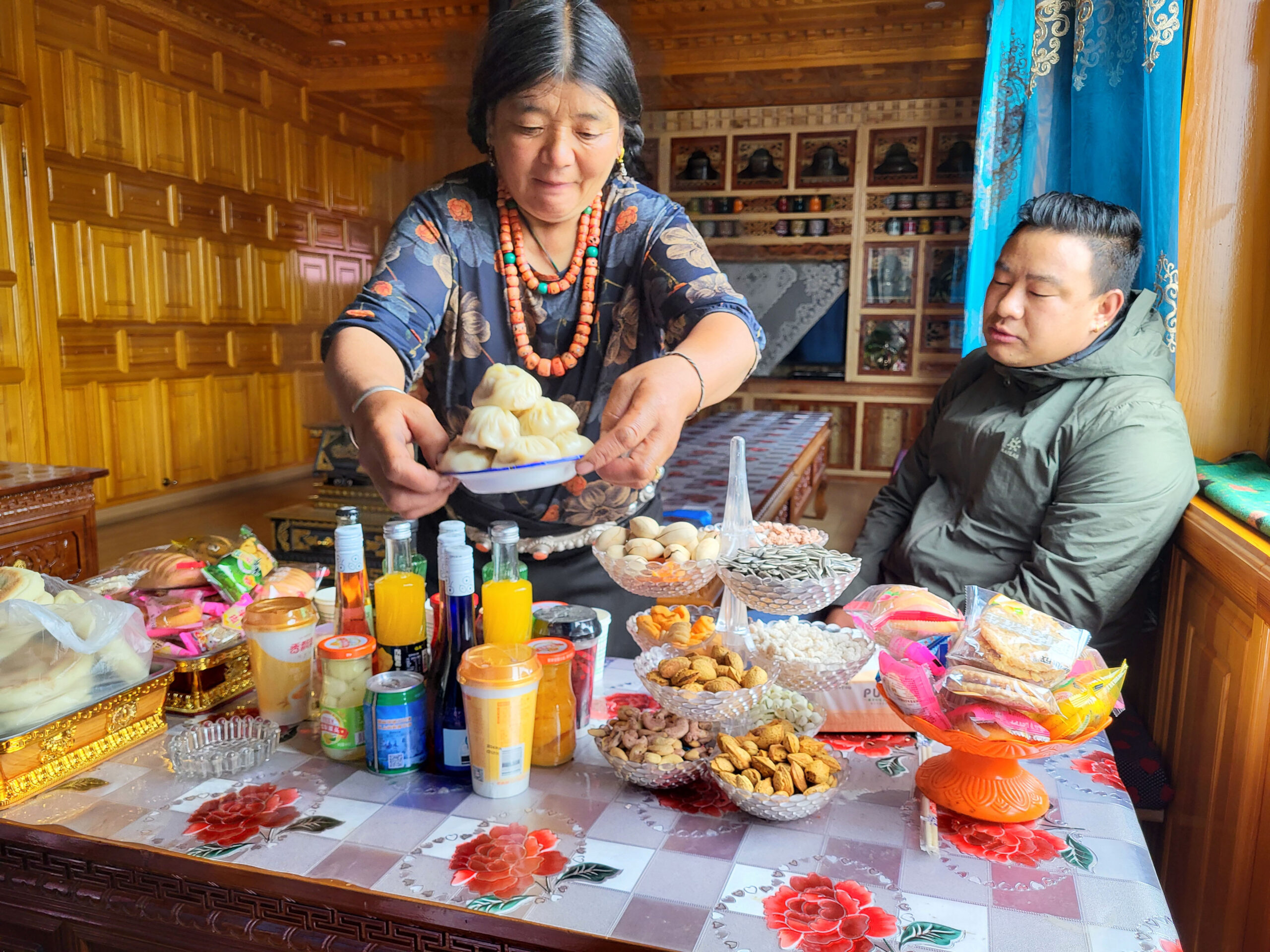
It was a pity that Niu Niu and Monkey couldn’t stay longer. We decided to spend more time in Xiaman and the grassland since we seldom get the chance to interact closely with Tibetans and see how they live. Ajia went out of the way to be with us and made us feel so welcomed. He treated us to dinner and even arranged us to stay at the only hotel in town. He wouldn’t let us pay and said that he would be offended if we paid for any of it.
